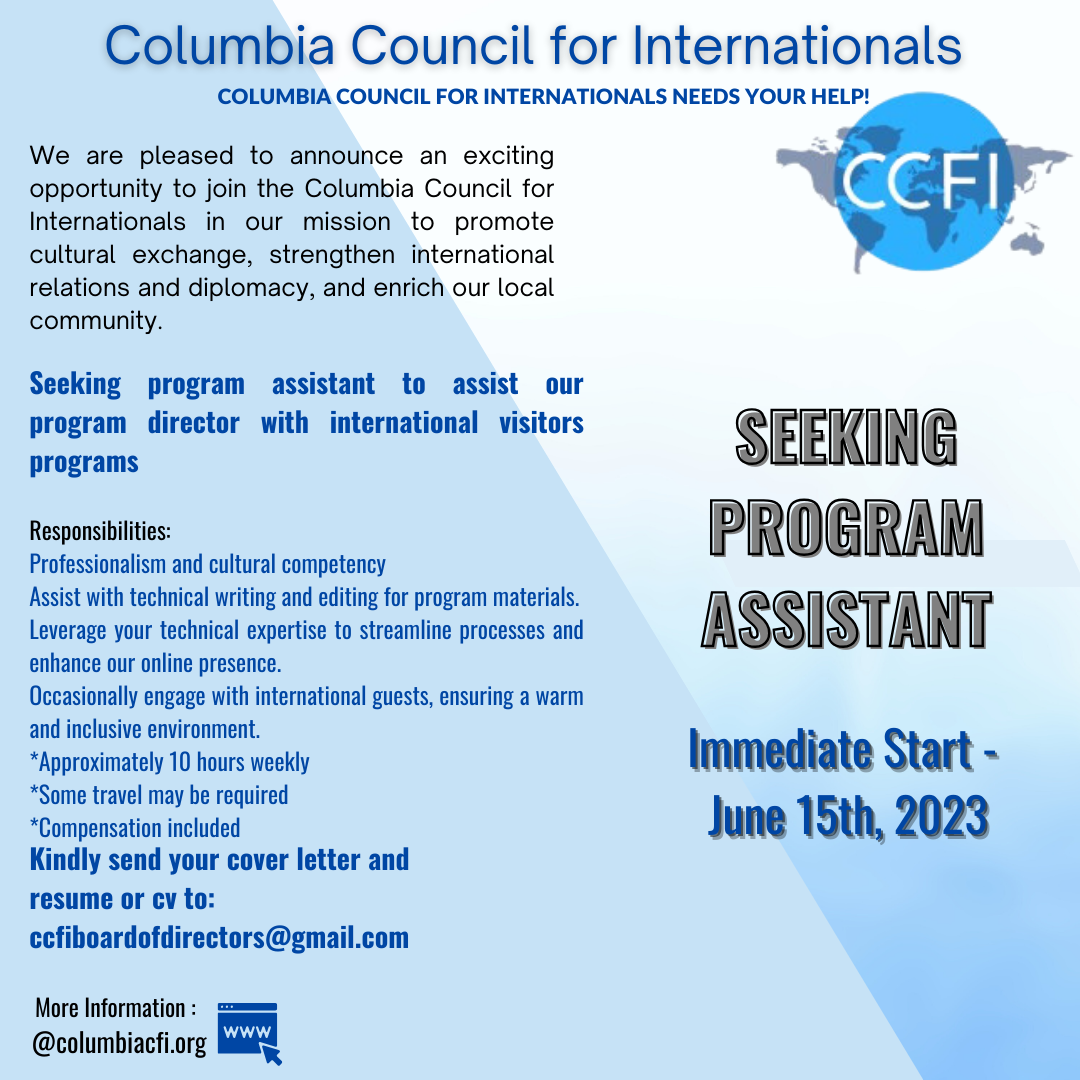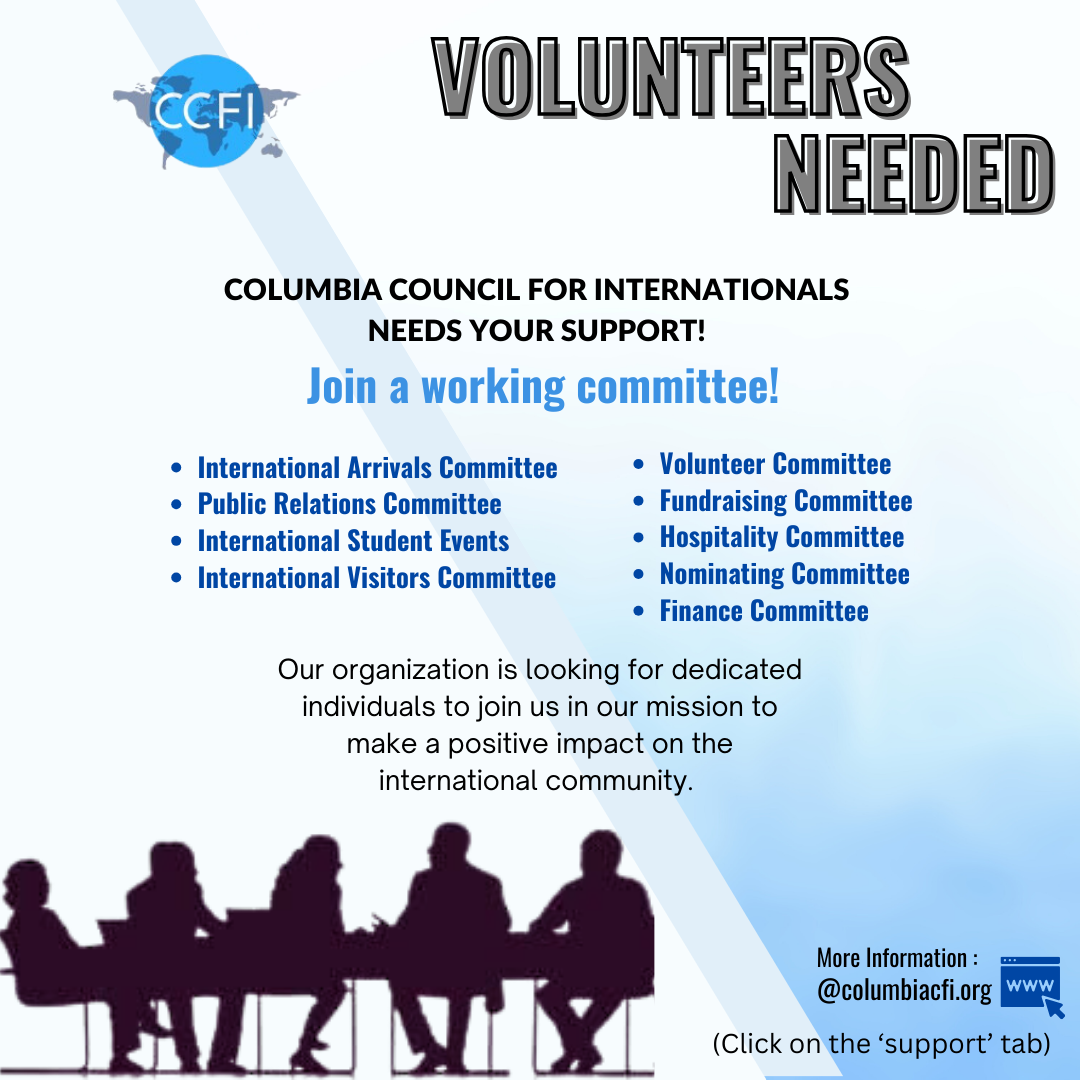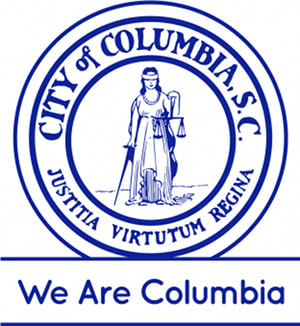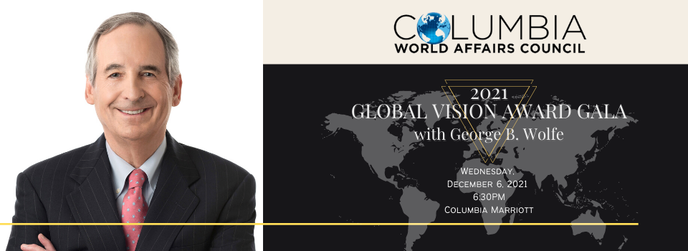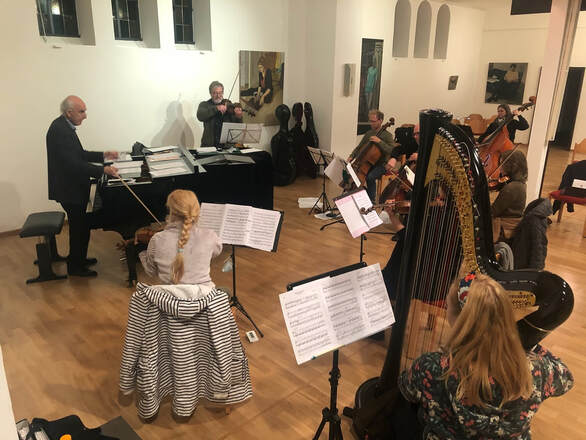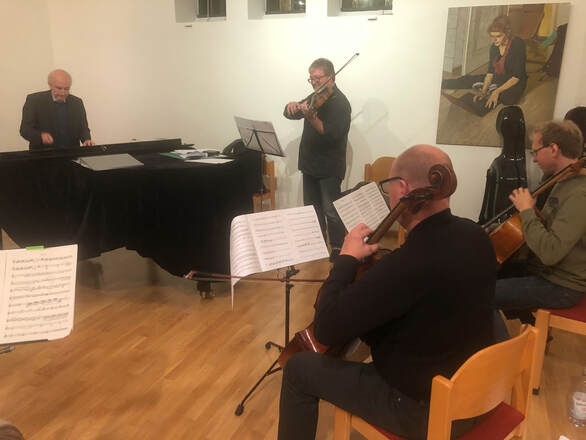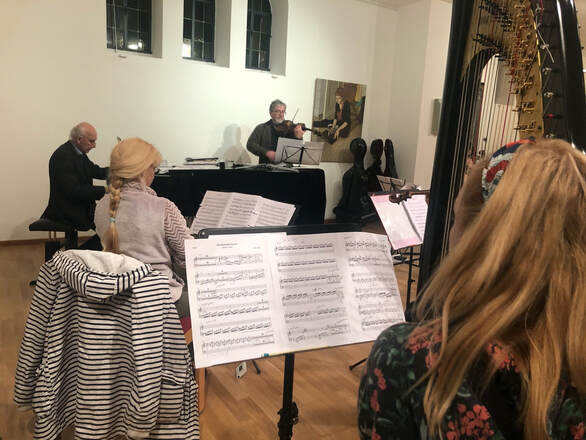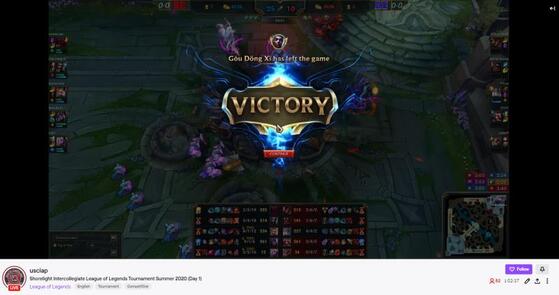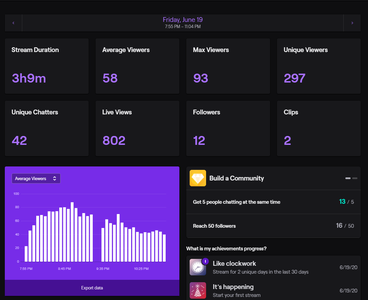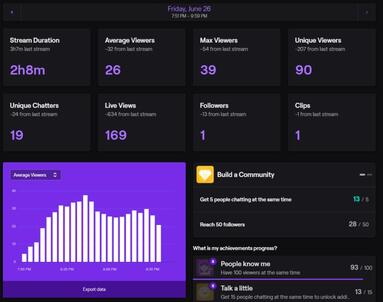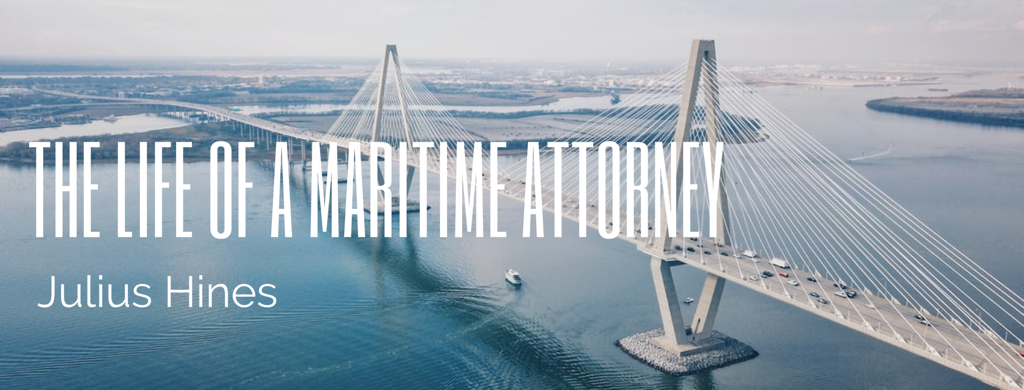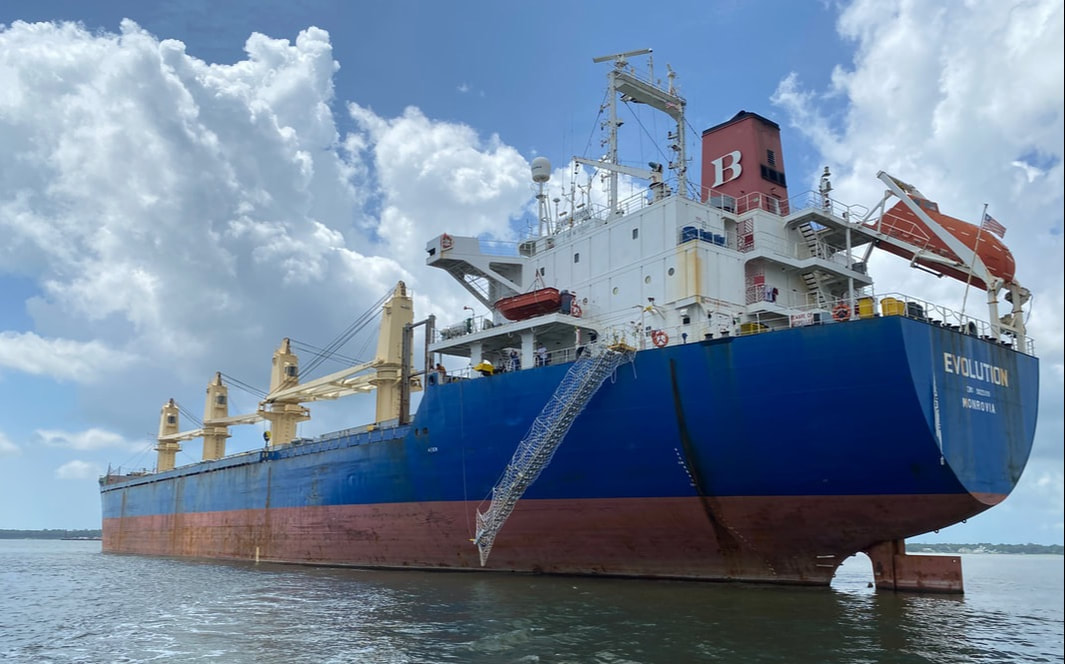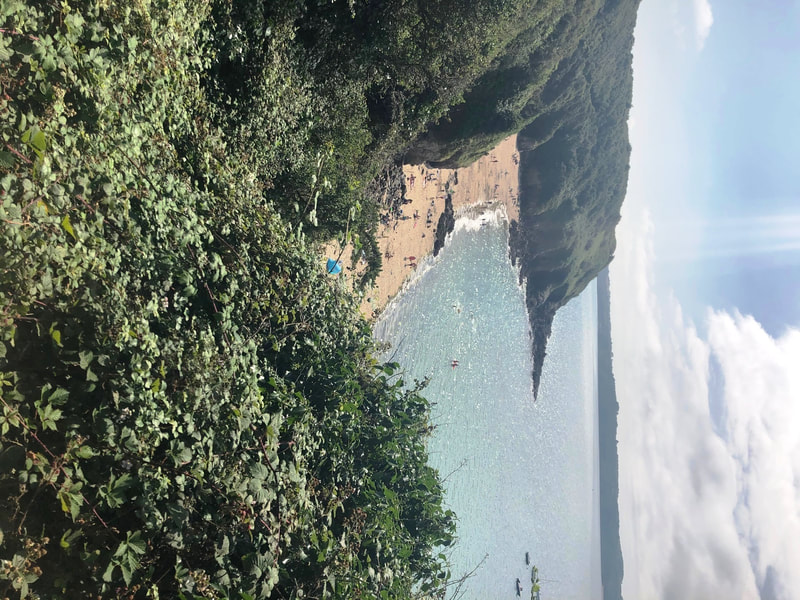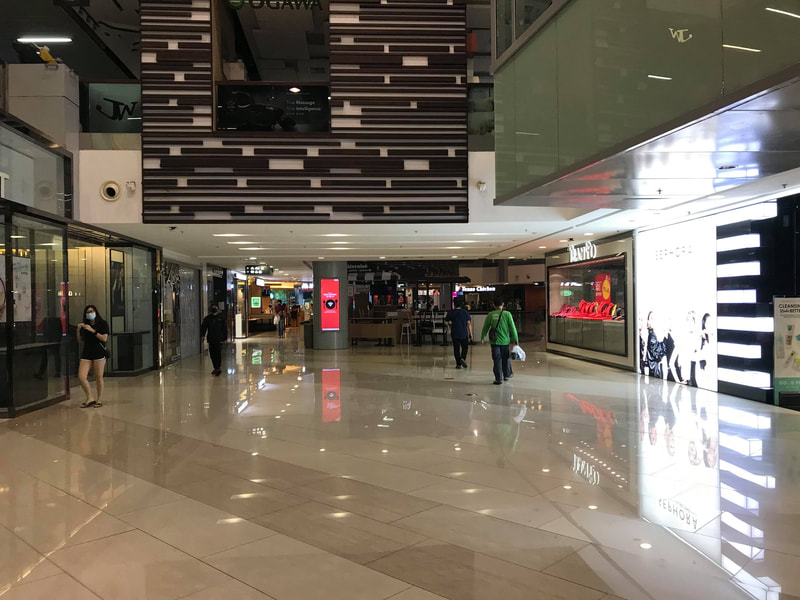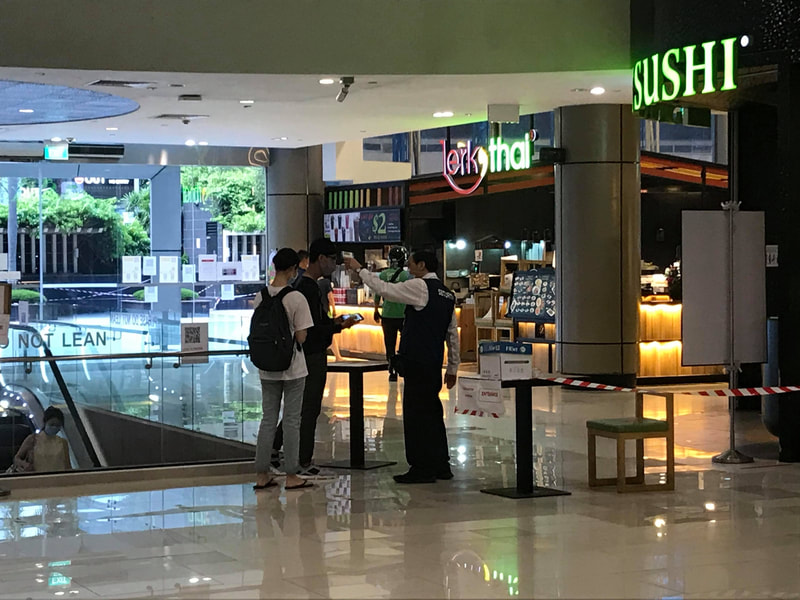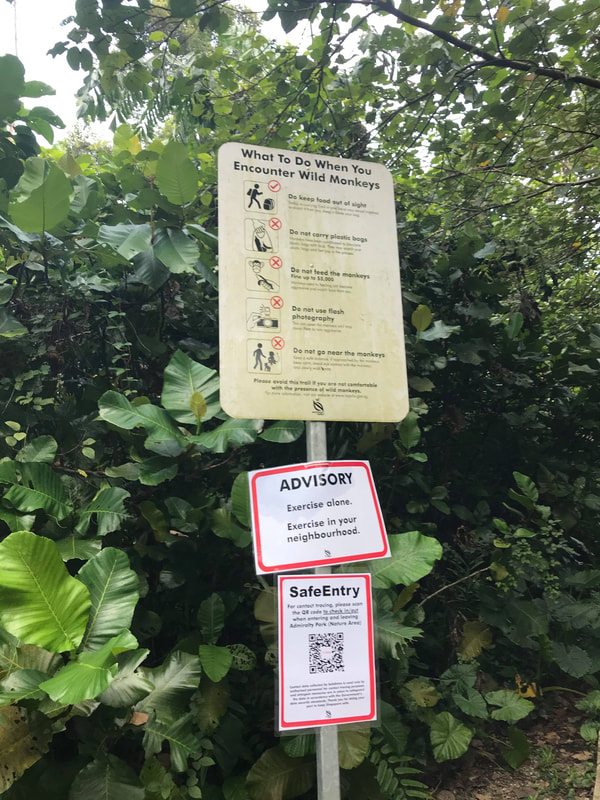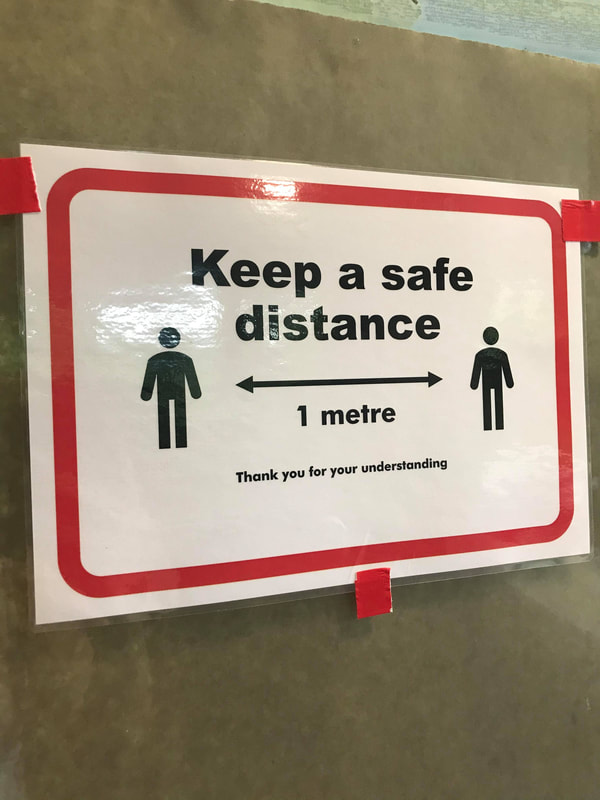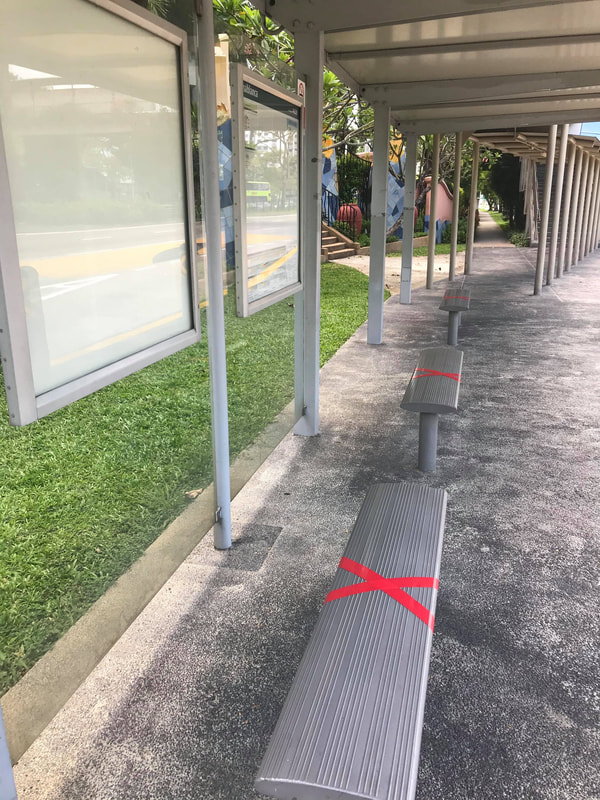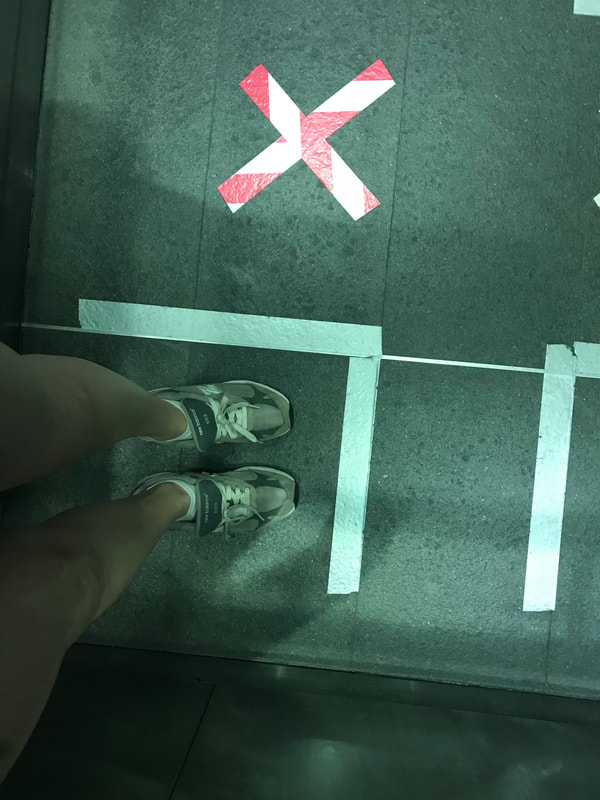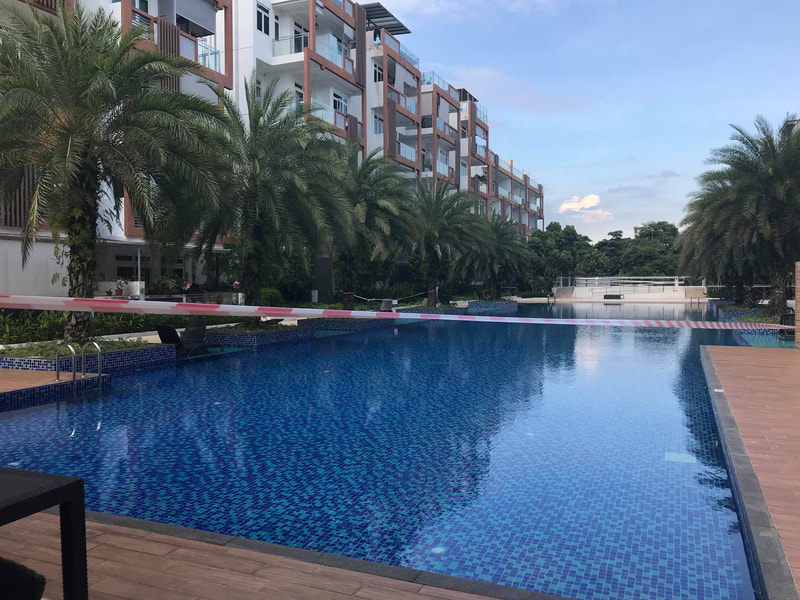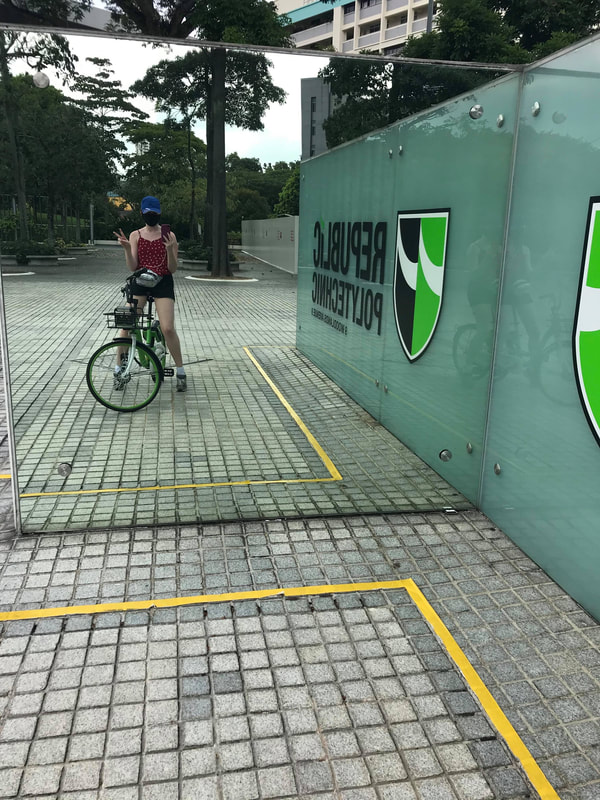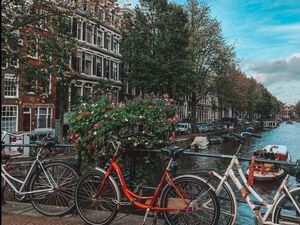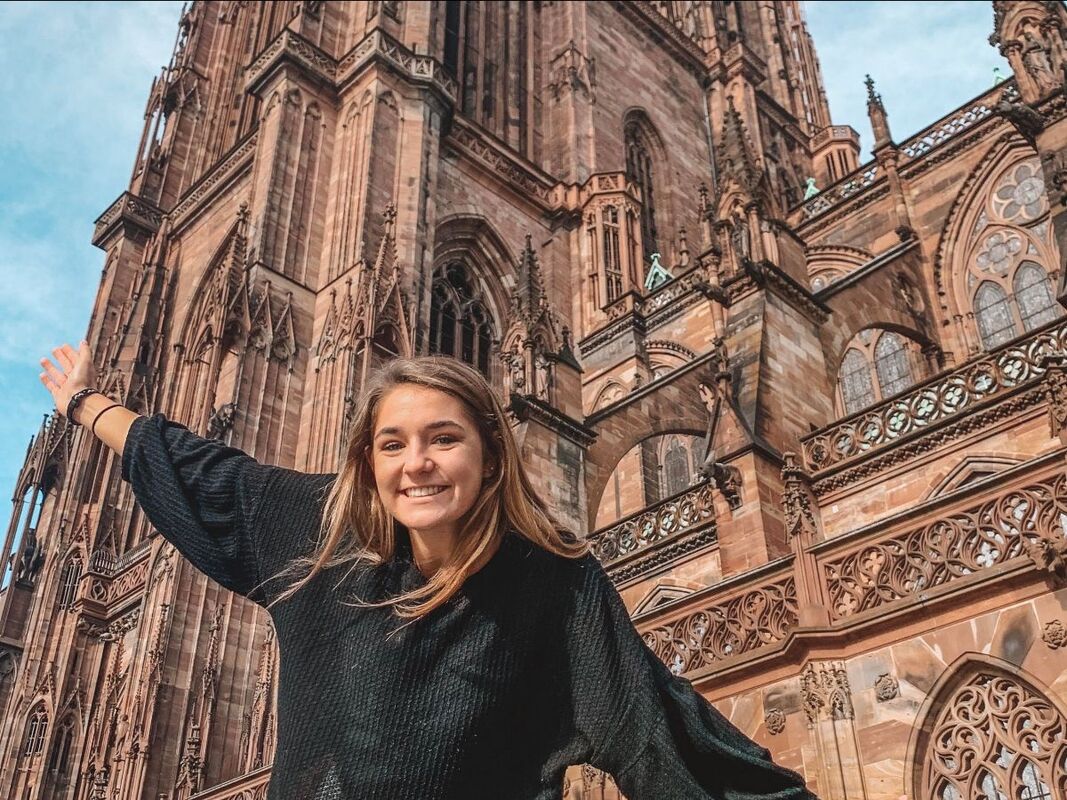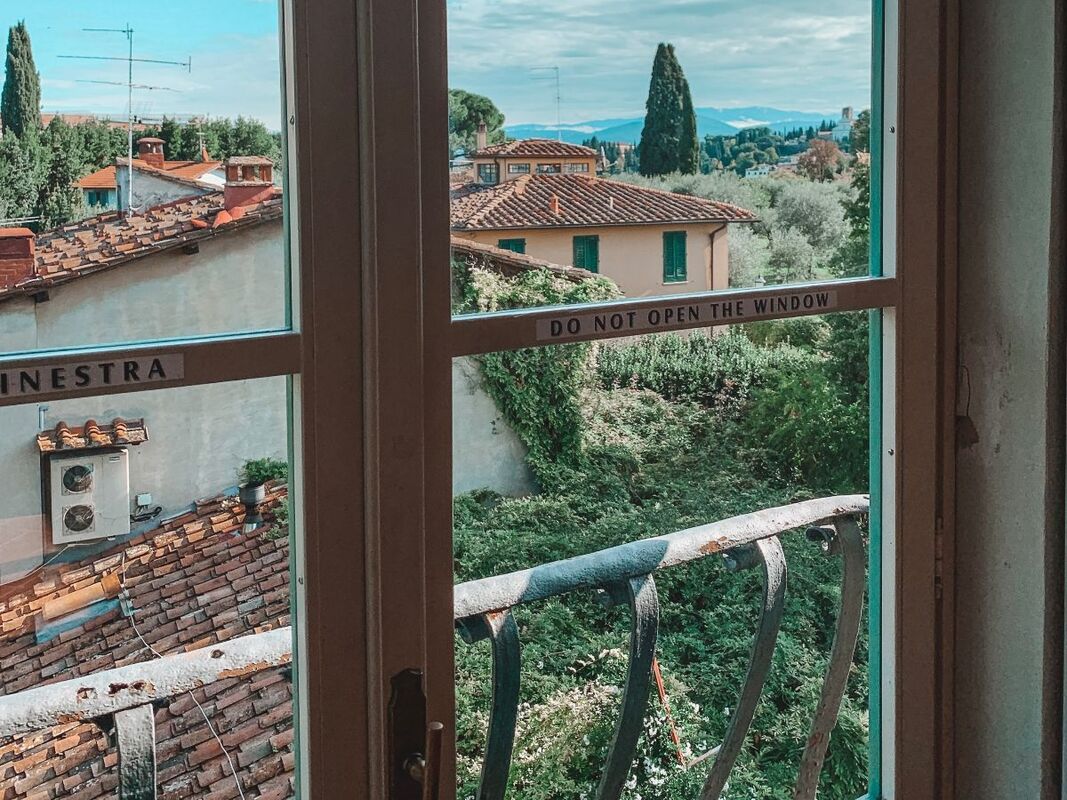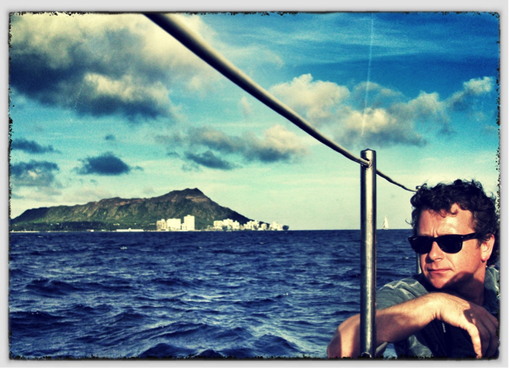GLOBAL NEWS + CWAC BLOG
Columbia Council for Internationals Seeking Program Assistant
& Volunteers!
Dr. Catherine Compton-Lilly, USC College of Education, Visits Taiwan as Guest Professor and Fulbright Scholar
This fall, Dr. Catherine Compton-Lilly from the University of South Carolina's College of Education, has been visiting Taiwan as a guest professor at National Tsing Hua University and as a Fulbright Scholar. As part of that work, she is working with teachers and a team of researchers to create simple bilingual books to support young children in Indigenous communities in learning their Indigenous language.
As in many Indigenous communities world-wide, the loss of Indigenous languages – often due to problematic attitudes and policies in schools and communities – is a global problem. One solution is to introduce Indigenous languages to children.
The bilingual books were created in close collaboration with Tribal Leaders from the Atayal community. Community leaders - including teachers, artists, and language experts - were asked to identify book topics, vocabulary and simple grammatical structures that they would like young children to learn in Atayal. Once books were drafted they were reviewed by tribal members and revised in accordance with tribal preferences. After using the books in classrooms, teachers in local schools – both Indigenous language teachers and kindergarten teachers – were invited to draft and use slightly more complicated books with students to further build their abilities with Atayal. Twenty-three additional books have been created.
As part of her Fulbright travels, Dr. Compton-Lilly has presented this work at two Universities in Australia and will share it with early childhood educators in Singapore.
In a parallel project conducted in South Carolina, seven books have been drafted in collaboration with Cherokee speakers. Cherokee community leaders have reviewed these books and provided feedback. They will soon be going to press and will be available online for free download!
As in many Indigenous communities world-wide, the loss of Indigenous languages – often due to problematic attitudes and policies in schools and communities – is a global problem. One solution is to introduce Indigenous languages to children.
The bilingual books were created in close collaboration with Tribal Leaders from the Atayal community. Community leaders - including teachers, artists, and language experts - were asked to identify book topics, vocabulary and simple grammatical structures that they would like young children to learn in Atayal. Once books were drafted they were reviewed by tribal members and revised in accordance with tribal preferences. After using the books in classrooms, teachers in local schools – both Indigenous language teachers and kindergarten teachers – were invited to draft and use slightly more complicated books with students to further build their abilities with Atayal. Twenty-three additional books have been created.
As part of her Fulbright travels, Dr. Compton-Lilly has presented this work at two Universities in Australia and will share it with early childhood educators in Singapore.
In a parallel project conducted in South Carolina, seven books have been drafted in collaboration with Cherokee speakers. Cherokee community leaders have reviewed these books and provided feedback. They will soon be going to press and will be available online for free download!
Check out this updated report from USC on Dr. Compton-Lilly's work!
https://www.sc.edu/uofsc/posts/2023/05/breakthrough_remembering_words.php
https://www.sc.edu/uofsc/posts/2023/05/breakthrough_remembering_words.php
City of Columbia and The Columbia World Affairs Council Welcomes the Mayor of Accra Ghana and Delegation to Columbia
April 27, 2022
The City of Columbia and Columbia World Affairs Council will host distinguished guests from the Republic of Ghana from May 8th, 2022 to May 17th, 2022, including newly elected Mayor of Accra Elizabeth Sackey and a delegation representing every branch of government from the Republic of Ghana, to celebrate 11 years of the Columbia-Accra Sister City partnership.
The Columbia-Accra Sister City Anniversary Ball on Thursday, May 12, will showcase the growth of both cities and honor those who made this partnership possible.
We will present the West Africa Computer Initiative, in partnership with Sister Cities International (SCI) and the Accra Metropolitan Assembly. The initiative will construct a state-of-the-art community center in the Greater Accra Region as a highlight of the SCI Africa Region’s latest endeavor to bridge the global digital divide in Africa.
The project is an exciting development in our sister city relationship. Our current partners are United Way Ghana and Entire Village Computer Organization.
The 20 plus delegation will also include:
The Columbia/Accra Sister City Resolution that was formed by Former Columbia Hon. Mayor Steve K. Benjamin and Parliamentarian Hon. Dr. Alfred O. Vanderpuije.
More information, contributions, sponsorships, and tickets can be made:
The City of Columbia and Columbia World Affairs Council will host distinguished guests from the Republic of Ghana from May 8th, 2022 to May 17th, 2022, including newly elected Mayor of Accra Elizabeth Sackey and a delegation representing every branch of government from the Republic of Ghana, to celebrate 11 years of the Columbia-Accra Sister City partnership.
The Columbia-Accra Sister City Anniversary Ball on Thursday, May 12, will showcase the growth of both cities and honor those who made this partnership possible.
We will present the West Africa Computer Initiative, in partnership with Sister Cities International (SCI) and the Accra Metropolitan Assembly. The initiative will construct a state-of-the-art community center in the Greater Accra Region as a highlight of the SCI Africa Region’s latest endeavor to bridge the global digital divide in Africa.
The project is an exciting development in our sister city relationship. Our current partners are United Way Ghana and Entire Village Computer Organization.
The 20 plus delegation will also include:
- Former Mayor of Accra Ghana and current Parliamentarian Hon. Dr. Alfred O. Vanderpuije
- Ing. Dr. Nana Ato Arthur Head of Service of Local Government Service and the Chief Director Mr. James Oppong-Mensah.
- Dr. Archibald Yao Letsa The Regional Minister of the Volta Region in Ghana the dean of all 16 regional ministers in the Republic of Ghana.
The Columbia/Accra Sister City Resolution that was formed by Former Columbia Hon. Mayor Steve K. Benjamin and Parliamentarian Hon. Dr. Alfred O. Vanderpuije.
More information, contributions, sponsorships, and tickets can be made:
- Online: https://www.columbiaworldaffairs.org/sister-cities.html
- Email: [email protected]
- Phone: 803-252-2197
Palmetto Forum: Ukraine-Russia War Panels
Part 1 & 2
On Feb. 22, 2022, two days before Russia's invasion of Ukraine, then again on March 16, CWAC partnered with UofSC's Walker Institute of International Studies and Area Studies to present panels of experts to discuss concerns and then the war unfolding in Ukraine. A third installment of the Palmetto Forum series with Dr. Benjamin Peters, an Associate Professor at the University of Tulsa, titled "Why the Internet Was Not Soviet Until it Was." will be a virtual engagement from 3:00 to 4:30 p.m. on Tuesday, April 12. Please register for the April 12th presentation here!
In case you missed the first two, please see the recordings below.
[video courtesy of Steve Hait]
In case you missed the first two, please see the recordings below.
[video courtesy of Steve Hait]
George B. Wolfe, Partner at Nelson Mullins, to Receive 2021 Global Vision Award
October 21, 2021
The Columbia World Affairs Council is pleased to announce that George B. Wolfe will receive the 2021 Global Vision Award. Mr. Wolfe will be honored at a black-tie gala at the Columbia Marriott on Monday, December 6, 2021. This is the 28th year the Columbia World Affairs Council has presented the award to a leader whose contributions have made a significant impact on projecting South Carolina globally.
“I don’t know anyone who has had more of an impact on international economic development in South Carolina over the last 40 years,” said Bobby Hitt, former South Carolina Secretary of Commerce.
Mr. Wolfe is partner and co-chair of the Economic Development Practice Group at Nelson Mullins Riley & Scarborough LLP and founding board member of the Columbia World Affairs Council. During his career, he created and amended tax and incentive laws that positioned South Carolina to consistently be one of the leading states for capital investment in the Nation. He has represented companies from Australia, Canada, China, France, Germany, India, Italy, Japan, The Netherlands, Sweden, Switzerland, and the United Kingdom.
The first recipient of the Global Vision Award was the late Gov. Carroll A. Campbell in 1994. It was during Campbell’s tenure that Mr. Wolfe helped create the economic development legislation that led to BMW of Germany’s first manufacturing facility in the United States in 1992, in Spartanburg County, which today represents an investment of more than $11.4 billion and employs some 11,000 people.
Mr. Wolfe represented the Swiss pharmaceutical giant Hoffmann-La Roche in its $750 million research and manufacturing facility in Florence. He also represented Toray of Japan when it made the single largest initial economic development investment in South Carolina history with its $1 billion carbon fiber plant in Greenville to supply Boeing in Charleston.
Mr. Wolfe served as deputy general counsel and counselor to the Secretary for the Department of the Treasury under President George W. Bush and helped create the modern-day financial system and currency in Iraq during two tours in the leadership of the Coalition Provisional Authority in 2003 and 2004.
In 1992, Mr. Wolfe helped create the Columbia World Affairs Council with Fred Monk when he chaired the International Committee of the Columbia Chamber of Commerce and helped establish the organization committee that led to the Council’s formation. Besides its international programs, the Council administers the Sister-City Program for the City of Columbia in seven countries. George has been a long-serving board member.
“There would not be a Columbia World Affairs Council without George Wolfe” emphasized Fred Monk, who was business editor of The State Newspaper when he wrote a column on Jan. 1, 1992, calling for the establishment of a World Affairs Council in Columbia because of Columbia’s broad and deep international ties. At a Committee of 100 meeting that Monk covered, Wolfe asked: “What do you need?” He then proceeded to help Mr. Monk establish the stellar organizing committee of leaders in Columbia that formed the Council.
“We founded CWAC in 1993 to better connect our region with an increasingly globalized world,” said Wolfe. “Through the years, the Council has increased South Carolina's visibility on the global stage while firmly establishing the State as an important destination in the global economy. Today, the Council serves an increasingly important role in building international relationships and helping our community better understand the rapidly evolving global dynamics.”
The Columbia World Affairs Council is a non-profit, nonpartisan organization fostering public awareness of global issues and international activities in the Midlands of South Carolina. The Council is a member of the Washington-based World Affairs Councils of America and Sister Cities International.
The 2020 Global Vision Award was given in honor and remembrance of the late Harry Arthur Huge, Honorary Consul of the Republic of Estonia for South Carolina, attorney, venture capitalist, and philanthropist.
The Columbia World Affairs Council is pleased to announce that George B. Wolfe will receive the 2021 Global Vision Award. Mr. Wolfe will be honored at a black-tie gala at the Columbia Marriott on Monday, December 6, 2021. This is the 28th year the Columbia World Affairs Council has presented the award to a leader whose contributions have made a significant impact on projecting South Carolina globally.
“I don’t know anyone who has had more of an impact on international economic development in South Carolina over the last 40 years,” said Bobby Hitt, former South Carolina Secretary of Commerce.
Mr. Wolfe is partner and co-chair of the Economic Development Practice Group at Nelson Mullins Riley & Scarborough LLP and founding board member of the Columbia World Affairs Council. During his career, he created and amended tax and incentive laws that positioned South Carolina to consistently be one of the leading states for capital investment in the Nation. He has represented companies from Australia, Canada, China, France, Germany, India, Italy, Japan, The Netherlands, Sweden, Switzerland, and the United Kingdom.
The first recipient of the Global Vision Award was the late Gov. Carroll A. Campbell in 1994. It was during Campbell’s tenure that Mr. Wolfe helped create the economic development legislation that led to BMW of Germany’s first manufacturing facility in the United States in 1992, in Spartanburg County, which today represents an investment of more than $11.4 billion and employs some 11,000 people.
Mr. Wolfe represented the Swiss pharmaceutical giant Hoffmann-La Roche in its $750 million research and manufacturing facility in Florence. He also represented Toray of Japan when it made the single largest initial economic development investment in South Carolina history with its $1 billion carbon fiber plant in Greenville to supply Boeing in Charleston.
Mr. Wolfe served as deputy general counsel and counselor to the Secretary for the Department of the Treasury under President George W. Bush and helped create the modern-day financial system and currency in Iraq during two tours in the leadership of the Coalition Provisional Authority in 2003 and 2004.
In 1992, Mr. Wolfe helped create the Columbia World Affairs Council with Fred Monk when he chaired the International Committee of the Columbia Chamber of Commerce and helped establish the organization committee that led to the Council’s formation. Besides its international programs, the Council administers the Sister-City Program for the City of Columbia in seven countries. George has been a long-serving board member.
“There would not be a Columbia World Affairs Council without George Wolfe” emphasized Fred Monk, who was business editor of The State Newspaper when he wrote a column on Jan. 1, 1992, calling for the establishment of a World Affairs Council in Columbia because of Columbia’s broad and deep international ties. At a Committee of 100 meeting that Monk covered, Wolfe asked: “What do you need?” He then proceeded to help Mr. Monk establish the stellar organizing committee of leaders in Columbia that formed the Council.
“We founded CWAC in 1993 to better connect our region with an increasingly globalized world,” said Wolfe. “Through the years, the Council has increased South Carolina's visibility on the global stage while firmly establishing the State as an important destination in the global economy. Today, the Council serves an increasingly important role in building international relationships and helping our community better understand the rapidly evolving global dynamics.”
The Columbia World Affairs Council is a non-profit, nonpartisan organization fostering public awareness of global issues and international activities in the Midlands of South Carolina. The Council is a member of the Washington-based World Affairs Councils of America and Sister Cities International.
The 2020 Global Vision Award was given in honor and remembrance of the late Harry Arthur Huge, Honorary Consul of the Republic of Estonia for South Carolina, attorney, venture capitalist, and philanthropist.
Harry A. Huge, Honorary Consul for Estonia in SC to Receive 2020 Global Vision Award
December 23, 2020
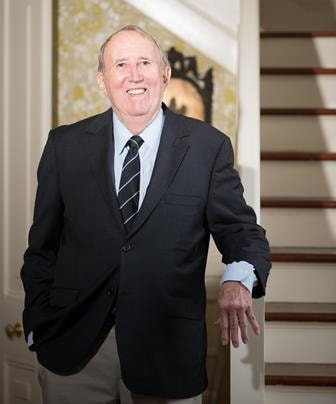
The Columbia World Affairs Council is pleased to announce the esteemed 2020 Global Vision Award will be given in honor and remembrance of the late Harry Arthur Huge, Honorary Consul of the Republic of Estonia for South Carolina, attorney, venture capitalist, and philanthropist. Mr. Huge passed away on April 27, 2020, at the age of 82. This is the 27th year the Columbia World Affairs Council has presented the award to a leader whose contributions have made a significant impact on projecting South Carolina globally.
Regretfully, this is the first year the award will be given both posthumously and without a black-tie gala during the year of recognition. The annual Global Vision Award Dinner has been postponed in regards to public safety during the global COVID-19 pandemic and an official presentation to the Huge family will take place as soon as possible in 2021.
During his long career as an attorney, Mr. Huge was involved in several landmark cases and represented thousands of families of 9/11 terrorist attack victims. Three books have been written about his trial work. Mr. Huge was actively involved in the civil rights movement, serving as President of the Voter Education Project in Atlanta, which registered black voters throughout the South, and co-authored articles in the New Republic.
Mr. Huge served from 1977 to 1981 as a member of the President’s General Advisory Committee on Arms Control and Strategic Weapons, advising the President directly on the SALT II treaty and the ability to verify the Soviet missile arsenal. The experience led him to Estonia, where in the late 1980s Mr. Huge devoted his energy to the country’s independence, then-occupied by the Soviet Union. On the eve of Estonia’s restoration of independence, he represented Estonia’s interests in Washington, and Estonia awarded him with the Medal of the Order of the Cross of Terra Mariana in 2006. He served as Estonia’s Honorary Consul for South Carolina since 2010.
In 2005, Mr. Huge and his wife established The Harry and Reba Huge Foundation, which has provided merit scholarships to students at Honors College at The College of Charleston, The Citadel, Mr. Huge’s alma mater Nebraska Wesleyan and two prominent universities in Estonia—University of Tartu and Tallinn Technical University. Mr. Huge also worked diligently to foster educational, cultural and economic exchange among the universities as well as between the governments of South Carolina and Estonia.
“Through his support of the Council, Mr. Huge brought valuable connections to the Midlands and contributed greatly to a better global community,” said Bob Coble, former Columbia Mayor and Chair of Columbia World Affairs Council Board of Directors. “His legacy connecting Estonia and South Carolina as well as his educational philanthropy for students and young entrepreneurs will continue to benefit our State for generations.”
In 2016, Mr. Huge led a Columbia World Affairs Council mission to Estonia which resulted with the Agreement between the Government of the Republic of Estonia and the Government of the State of South Carolina on Bilateral Cooperation in Industrial and Technological Research and Development. In 2017, he oversaw a return visit to Estonia with an expanded Columbia World Affairs Council delegation—including representatives of the South Carolina Department of Commerce, the University of South Carolina, economic development officials from Richland County and the City of Columbia, and private investors—further strengthening collaborations between the two regions with economic development and university partnerships focused on information technology, cybersecurity, and artificial intelligence. In 2018, the South Carolina-Estonia Industry R&D Program formally began calls for bi-national project proposals.
“Mr. Huge’s passion and vision will have a distinct and lasting impact on South Carolina’s students, companies, and government,” said Dickson Monk, Executive Director of the Columbia World Affairs Council. “It is the Council’s privilege to honor him with the 2020 Global Vision Award.”
Mr. Huge has served on many boards, including the Hollings Cancer Center at the Medical University of South Carolina where Mr. Huge served as its first Chairman of the Board for 8 years, the Spoleto Festival, and the South Carolina Aquarium. In addition, he has received honorary degrees from Nebraska Wesleyan University (2005), College of Charleston (2017), and, posthumously, The Citadel (2020). A full biography and more information can be found at thehugefoundation.org.
The Columbia World Affairs Council was established in 1993 to promote public awareness of global issues and international activities in the Midlands of South Carolina. The Council administers the sister-city program for the City of Columbia and is a member of the Washington-based World Affairs Councils of America and Sister Cities International.
The Global Vision Award was established in 1994, and the first recipient was Governor Carroll A. Campbell. Last year, the honor went to Claflin University President Henry N. Tisdale, Sr. For more information, please visit the Global Vision Award page.
Regretfully, this is the first year the award will be given both posthumously and without a black-tie gala during the year of recognition. The annual Global Vision Award Dinner has been postponed in regards to public safety during the global COVID-19 pandemic and an official presentation to the Huge family will take place as soon as possible in 2021.
During his long career as an attorney, Mr. Huge was involved in several landmark cases and represented thousands of families of 9/11 terrorist attack victims. Three books have been written about his trial work. Mr. Huge was actively involved in the civil rights movement, serving as President of the Voter Education Project in Atlanta, which registered black voters throughout the South, and co-authored articles in the New Republic.
Mr. Huge served from 1977 to 1981 as a member of the President’s General Advisory Committee on Arms Control and Strategic Weapons, advising the President directly on the SALT II treaty and the ability to verify the Soviet missile arsenal. The experience led him to Estonia, where in the late 1980s Mr. Huge devoted his energy to the country’s independence, then-occupied by the Soviet Union. On the eve of Estonia’s restoration of independence, he represented Estonia’s interests in Washington, and Estonia awarded him with the Medal of the Order of the Cross of Terra Mariana in 2006. He served as Estonia’s Honorary Consul for South Carolina since 2010.
In 2005, Mr. Huge and his wife established The Harry and Reba Huge Foundation, which has provided merit scholarships to students at Honors College at The College of Charleston, The Citadel, Mr. Huge’s alma mater Nebraska Wesleyan and two prominent universities in Estonia—University of Tartu and Tallinn Technical University. Mr. Huge also worked diligently to foster educational, cultural and economic exchange among the universities as well as between the governments of South Carolina and Estonia.
“Through his support of the Council, Mr. Huge brought valuable connections to the Midlands and contributed greatly to a better global community,” said Bob Coble, former Columbia Mayor and Chair of Columbia World Affairs Council Board of Directors. “His legacy connecting Estonia and South Carolina as well as his educational philanthropy for students and young entrepreneurs will continue to benefit our State for generations.”
In 2016, Mr. Huge led a Columbia World Affairs Council mission to Estonia which resulted with the Agreement between the Government of the Republic of Estonia and the Government of the State of South Carolina on Bilateral Cooperation in Industrial and Technological Research and Development. In 2017, he oversaw a return visit to Estonia with an expanded Columbia World Affairs Council delegation—including representatives of the South Carolina Department of Commerce, the University of South Carolina, economic development officials from Richland County and the City of Columbia, and private investors—further strengthening collaborations between the two regions with economic development and university partnerships focused on information technology, cybersecurity, and artificial intelligence. In 2018, the South Carolina-Estonia Industry R&D Program formally began calls for bi-national project proposals.
“Mr. Huge’s passion and vision will have a distinct and lasting impact on South Carolina’s students, companies, and government,” said Dickson Monk, Executive Director of the Columbia World Affairs Council. “It is the Council’s privilege to honor him with the 2020 Global Vision Award.”
Mr. Huge has served on many boards, including the Hollings Cancer Center at the Medical University of South Carolina where Mr. Huge served as its first Chairman of the Board for 8 years, the Spoleto Festival, and the South Carolina Aquarium. In addition, he has received honorary degrees from Nebraska Wesleyan University (2005), College of Charleston (2017), and, posthumously, The Citadel (2020). A full biography and more information can be found at thehugefoundation.org.
The Columbia World Affairs Council was established in 1993 to promote public awareness of global issues and international activities in the Midlands of South Carolina. The Council administers the sister-city program for the City of Columbia and is a member of the Washington-based World Affairs Councils of America and Sister Cities International.
The Global Vision Award was established in 1994, and the first recipient was Governor Carroll A. Campbell. Last year, the honor went to Claflin University President Henry N. Tisdale, Sr. For more information, please visit the Global Vision Award page.
News From Abroad
The International Language of Music: Turkish Chamber Orchestra with Betin Güneş
October 1, 2020

Noémie Kappmeyer, an upcoming business major from Cologne, Germany, first visited Columbia, SC as an exchange student at Heathwood Hall hosted by CWAC member Margaret Clarkson in 2018. She was to join the CWAC team as an intern for the Fall 2020 semester before the global pandemic disrupted her plans. She kindly shares an update from her current location in Cologne, Germany about the Turkish Chamber Orchestra with Betin Güneş.
Dear CWAC Members,
I am still disappointed that I cannot join you in South Carolina at the moment, so I want to continue sharing news from my life in Germany. Last time, I wrote about the pandemic during my stay in a small coastal town in France. Now, I am back in Germany and I would like to talk about the Turkish Chamber Orchestra in my hometown of Cologne.
My father, a professional cellist, has played in the Turkish Chamber Orchestra (TCO) for more than 25 years. The Turkish composer, conductor, pianist, and founder of the TCO Betin Güneş, is proud of his unique orchestra and their work. Members of TCO are from Hungary, Japan, Turkey, Germany, and Poland. The audience and the musicians communicate in the “international language of music,” as Betin says. He has composed over 19 symphonies which TCO has performed in recent years. This orchestra is a symbol of the cultural diversity found in Germany.
My father and Betin have known each other for a very long time. Today, my father plays cello for enjoyment, not as his source of money. However, most TCO members are professional musicians. For them, the COVID lockdown has been a tough time. These musicians make their living by performing on stage and no concerts took place during the lockdown.
Happily, TCO got a fellowship from the German Federal Cultural Foundation to support their program, reload, a season of 14 concerts to showcase TCO’s talent. Today, the musicians are excited to be back on stage performing everything from compositions of Betin Güneş to Mozart to Beethoven. TCO members say public performances are their “elixir of life— at all levels.” TCO wants to transport the feeling of cultural freedom and the joy of music itself.
Now, thanks to the fellowship of the German Federal Cultural Foundation, their unique work is open to the public again. I invite you to learn more about TCO, here: https://www.guenes-chamberorchestra.de. You may also find some of their performances YouTube or Spotify.
TCO’s next concert, reload Concert no.5, Autumn Concert, will be performed live at the Boiler house in the LVR industrial museum, Altenberg Zinc Factory, on November 6, at 7:30 p.m. (1:30 a.m. EST).
I took the photos here during the orchestra’s last rehearsal. Who knows, maybe one day you will be able to attend a live TCO concert in Columbia?
Best wishes,
Noémie
I am still disappointed that I cannot join you in South Carolina at the moment, so I want to continue sharing news from my life in Germany. Last time, I wrote about the pandemic during my stay in a small coastal town in France. Now, I am back in Germany and I would like to talk about the Turkish Chamber Orchestra in my hometown of Cologne.
My father, a professional cellist, has played in the Turkish Chamber Orchestra (TCO) for more than 25 years. The Turkish composer, conductor, pianist, and founder of the TCO Betin Güneş, is proud of his unique orchestra and their work. Members of TCO are from Hungary, Japan, Turkey, Germany, and Poland. The audience and the musicians communicate in the “international language of music,” as Betin says. He has composed over 19 symphonies which TCO has performed in recent years. This orchestra is a symbol of the cultural diversity found in Germany.
My father and Betin have known each other for a very long time. Today, my father plays cello for enjoyment, not as his source of money. However, most TCO members are professional musicians. For them, the COVID lockdown has been a tough time. These musicians make their living by performing on stage and no concerts took place during the lockdown.
Happily, TCO got a fellowship from the German Federal Cultural Foundation to support their program, reload, a season of 14 concerts to showcase TCO’s talent. Today, the musicians are excited to be back on stage performing everything from compositions of Betin Güneş to Mozart to Beethoven. TCO members say public performances are their “elixir of life— at all levels.” TCO wants to transport the feeling of cultural freedom and the joy of music itself.
Now, thanks to the fellowship of the German Federal Cultural Foundation, their unique work is open to the public again. I invite you to learn more about TCO, here: https://www.guenes-chamberorchestra.de. You may also find some of their performances YouTube or Spotify.
TCO’s next concert, reload Concert no.5, Autumn Concert, will be performed live at the Boiler house in the LVR industrial museum, Altenberg Zinc Factory, on November 6, at 7:30 p.m. (1:30 a.m. EST).
I took the photos here during the orchestra’s last rehearsal. Who knows, maybe one day you will be able to attend a live TCO concert in Columbia?
Best wishes,
Noémie
August 28, 2020
Esports Bring Students Together While Apart
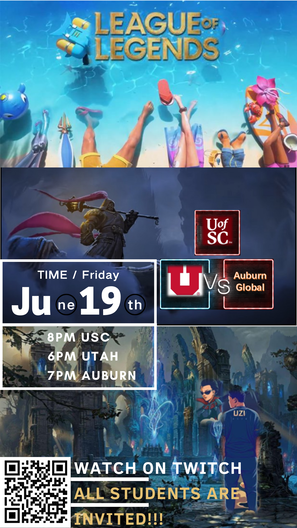
The University of South Carolina is committed to the safety and academic engagement of our international students and exchange students, and that commitment is even more important now in the midst of the COVID-19 crisis. This means that we have to come up with new and innovative ways of engaging students around the world, both culturally and academically. One way that we have engaged students academically is through our partnership with Shorelight, which is a well-regarded recruitment and engagement company for international students all over the world. Their new distance learning solution, Shorelight Live, has been beneficial for international students all over the world, who can use it to engage in coursework from a variety of high-quality American universities.
While effective distance learning benefits our international and exchange students academically, it is important for us to help international students get a well-rounded learning experience while staying safe. To achieve this, we can continue to prioritize international student engagement and safety not only through distance learning solutions, but also through electronic engagement and fun. The University of South Carolina International Accelerator Program (IAP), Auburn Global, and Utah Global came together to engage international students with an exciting electronic extracurricular activity: an Esports tournament. This collaborative effort resulted in a two-week long tournament that helped international students from multiple countries interact with each other in a safe and meaningful way.
While effective distance learning benefits our international and exchange students academically, it is important for us to help international students get a well-rounded learning experience while staying safe. To achieve this, we can continue to prioritize international student engagement and safety not only through distance learning solutions, but also through electronic engagement and fun. The University of South Carolina International Accelerator Program (IAP), Auburn Global, and Utah Global came together to engage international students with an exciting electronic extracurricular activity: an Esports tournament. This collaborative effort resulted in a two-week long tournament that helped international students from multiple countries interact with each other in a safe and meaningful way.
As a collaborative exercise between the three universities, the Esports tournament was a resounding success for engaging international students safely and outside of the classroom. The students played the popular online game League of Legends. Angi Wang, the Senior Student Services Advisor at the University of South Carolina’s IAP office, reported that, “the tournament lasted two weeks from 6/19 to 6/29, with a total of 177 viewers, 18 international players, and a team of volunteering gaming casters on Discord.” Further, Angi Wang praised the event’s success, saying, “we had participants from the US, Korea, Vietnam, and China. Everyone was physically separated by the COVID-19 pandemic but was brought together by the love of Esport.”
Ultimately, the Esports tournament represents the University of South Carolina embracing engagement activities for international students that go beyond tradition, both for student safety and to encourage our international students to pursue and prioritize their interests. The online video game event allowed students to cooperate and compete even while they are separated by many miles. Events like this one, along with the university’s commitment to providing a high quality academic and cultural experience, will pave the way forward for international students to be increasingly enriched through their time at the University of South Carolina.
Ultimately, the Esports tournament represents the University of South Carolina embracing engagement activities for international students that go beyond tradition, both for student safety and to encourage our international students to pursue and prioritize their interests. The online video game event allowed students to cooperate and compete even while they are separated by many miles. Events like this one, along with the university’s commitment to providing a high quality academic and cultural experience, will pave the way forward for international students to be increasingly enriched through their time at the University of South Carolina.
Global Carolina maximizes student and faculty access to global learning, maintains a globally diverse student body, and supports international scholarly endeavors. Our services and programs facilitate international and American students' engagement with international learning both in and beyond the classroom.
August 12, 2020
The Life of a Maritime Attorney
Julius Hines kindly shares an update of his work from his current location in Charleston, South Carolina. Julius manages his own maritime, trade and commercial practice, Hines Law LLC, in addition to teaching as an adjunct professor at the Charleston School of Law.
My COVID-19 confinement was enlivened by the opportunity to assist crew members aboard the bulk cargo vessel EVOLUTION, which had been arrested in judicial proceedings in Charleston. Most of the crew were Filipino, with two officers from the Middle East. As the ship was originally detained in January, there was no safer place to visit in May as the entire crew had effectively been quarantined for months. A judicial sale of the ship became final late in May, and all crew were able to fly home--generally to face more quarantine, as the U.S. was by then a coronavirus "hot spot." One of the officers was from Beirut and I am glad to say he and his family checked in safely after the tragic explosion in that city.
Share your stories to [email protected]. You can also head to our news section on our website for more: https://www.columbiaworldaffairs.org/news.html
NEWS FROM ABROAD
July 24, 2020
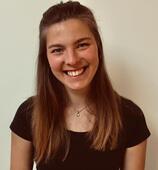
Noémie Kappmeyer, an upcoming business major from Cologne, Germany, first visited Columbia, SC as an exchange student at Heathwood Hall hosted by CWAC member Margaret Clarkson in 2018. She was to join the CWAC team as an intern for the Fall 2020 semester before the global pandemic disrupted her plans. She kindly shares an update from her current location in Saint-Cast-le-Guildo, France where she is visiting her grandfather before returning to Germany.
Dear CWAC Members,
While I am disappointed I am not able to join you in South Carolina this fall, I’d thought you’d be interested in news from my current location in the Côtes d’ Armor region of Bretagne [Brittany], France.
The little village I am staying in, St. Cast le Guildo, is generally a popular tourist destination in summer time. Due to the pandemic, the French are staying in France for their vacation instead of going abroad. So, there are many more French people here, as well as visitors from other countries.
I can only speak of my impressions, but there are more tourists than previous years, especially more French. The beaches are full and, in this region, masks were not obligatory in every store. Each store decided preventative measures for itself. I observed very few people wearing masks.
Now, since Monday the 20th of July, the masks are required in all enclosed spaces across the entire country because the number of infected people is rising again. Here are some pictures I took those before the new preventative measures were announced.
I will be back in Germany mid-August and will write again with further news from there.
Best wishes,
Noémie
While I am disappointed I am not able to join you in South Carolina this fall, I’d thought you’d be interested in news from my current location in the Côtes d’ Armor region of Bretagne [Brittany], France.
The little village I am staying in, St. Cast le Guildo, is generally a popular tourist destination in summer time. Due to the pandemic, the French are staying in France for their vacation instead of going abroad. So, there are many more French people here, as well as visitors from other countries.
I can only speak of my impressions, but there are more tourists than previous years, especially more French. The beaches are full and, in this region, masks were not obligatory in every store. Each store decided preventative measures for itself. I observed very few people wearing masks.
Now, since Monday the 20th of July, the masks are required in all enclosed spaces across the entire country because the number of infected people is rising again. Here are some pictures I took those before the new preventative measures were announced.
I will be back in Germany mid-August and will write again with further news from there.
Best wishes,
Noémie
Singapore in the Age of COVID-19
May 14, 2020
Contributed by Myra Andrews. Myra is a CWAC member living and teaching in Singapore. A graduate of the University of South Carolina, she previously led CWAC's French Conversation Group and acted as the Columbia liaison for the French-American Chamber of Commerce of the Carolinas. French enthusiasts should follow Myra's blog, The Versatile Francophile.
Greetings from Singapore where we have been experiencing a “circuit breaker” period since April 7th to slow the spread of the Coronavirus. This period was extended from May 4th to June 1st due to the rise in cases, especially those related to foreign worker dormitories which have now all became isolation zones. During this time, we cannot socialise with anyone outside of our household, are required to wear masks outside and must always practise social distancing. If you are caught flouting the “circuit breaker” rules you can expect a hefty fine and/or jail sentencing. Only essential businesses have been allowed to stay open such as grocery stores and clinics. Other services and businesses will soon be allowed to open as long as they adhere to measures such as temperature checking, identity card scanning for contact tracing and only allowing a small number of customers into their business at a time.
To keep myself sane during this period, I often go on long bike rides, practise yoga, cook and video call my friends and boyfriend. Soon I will be teaching again using Zoom as things hopefully normalise. Normalisation seems hopeful as the local transmission numbers decrease in the community and as certain businesses slowly reopen. What I understand for certain is that even once the “circuit breaker” period ends on June 1st, we must continue to mask and social distance at all times. The Ministry will be issuing another round of free reusable masks by the end of this month and they also announced that they are working on a better system for contact tracing. Fingers crossed as we overcome this battle! It has not been easy, but I am fortunate for the support of my loved ones.
To keep myself sane during this period, I often go on long bike rides, practise yoga, cook and video call my friends and boyfriend. Soon I will be teaching again using Zoom as things hopefully normalise. Normalisation seems hopeful as the local transmission numbers decrease in the community and as certain businesses slowly reopen. What I understand for certain is that even once the “circuit breaker” period ends on June 1st, we must continue to mask and social distance at all times. The Ministry will be issuing another round of free reusable masks by the end of this month and they also announced that they are working on a better system for contact tracing. Fingers crossed as we overcome this battle! It has not been easy, but I am fortunate for the support of my loved ones.
Global Spotlight: Lilly Kays, CWAC Spring 2020 Intern
Lilly, a Global Studies Major at the University of South Carolina, joined the CWAC team in January 2020. She was recently interviewed in the Global Studies Newsletter about her study abroad experiences in Italy.
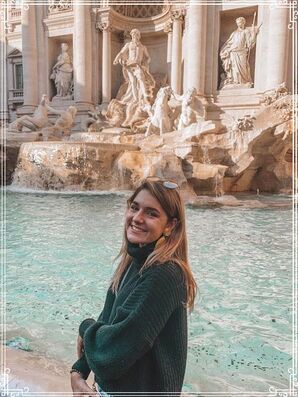
Q: Where are you currently studying? Tell me something about what you love most about the country.
I studied in Florence, Italy. My favorite part about Italy is the relaxed lifestyle. I feel as if sometimes in America I get caught up rushing through things and going through the motions. Italians, take their time with everything- walking to work, eating dinner with family and friends, or shopping at the market. Following in their footsteps and slowing down made me treasure my time and my experiences. This country reminded me to live in the moment and I loved every second of it.
Q: Describe an experience or experiences during study abroad that have influenced the way you understand the world.
I had the opportunity to attend a Fiorentina soccer game on the outskirts of Florence. The fans at the game stood the whole time waving flags, chanting and singing songs. While I did not know the songs or the chants, this experience truly impacted me. I thought of William Brice stadium and how at football games we all unite for a common purpose, to cheer for our team, our school that we are proud to attend. Here, I was across the world in a city that seemed a little less foreign to me every single day, watching strangers unite for something they were passionate about, for a team they loved, for a city they were proud to represent. This influenced the way I saw the world because I realized every culture unites, whether through sports or other means, because they are proud of who they are. While we might not understand every culture, it is our duty as global citizens and human beings to be respectful because everyone is proud of where they come from.
Q: How do your experiences abroad fit into your Global Studies major?
One of my focuses for Global Studies is Culture and my area of the world is Europe so my classes in Italy were able to count for my major! All the other students studying in Italy said that their classes were only counting as electives and when they got back to the states they would have heavy course loads to make up for their times abroad. This was a foreign concept to me since I was able to complete my major requirements while abroad! In addition, I am an Italian minor so I was able to complete my minor requirements with an advanced Italian Class, Cultural Introduction to Italy-which taught about Italy in Italian, and the Study of the Italian Family where I visited Florentine families and spoke with them in Italian about their family structure.
Q: What advice, guidance, quirky bits of knowledge, or just random facts would you share with other Global Studies majors?
Get ready for a personalized, eye-opening education like no other. Switching my major to Global Studies was the best decision I ever made. There is so much freedom when choosing what classes you want to take and you truly get to be the author of your own degree. This major has already opened me up diverse opportunities. I have been able to intern with a State Port handling international trade agreements, accepted an internship with the World Affairs Council in Columbia, and received an internship with Wells Fargo Corporate handling global and wholesale risk management for this summer. The Global Studies major makes us into candidates for whatever we wish to pursue. We aren't stuck with one career path. The world is becoming so interconnected, companies want internationalized students. I am so lucky this major has shaped me into a global citizen and scholar. If you're here, I promise you're in the right place.
I studied in Florence, Italy. My favorite part about Italy is the relaxed lifestyle. I feel as if sometimes in America I get caught up rushing through things and going through the motions. Italians, take their time with everything- walking to work, eating dinner with family and friends, or shopping at the market. Following in their footsteps and slowing down made me treasure my time and my experiences. This country reminded me to live in the moment and I loved every second of it.
Q: Describe an experience or experiences during study abroad that have influenced the way you understand the world.
I had the opportunity to attend a Fiorentina soccer game on the outskirts of Florence. The fans at the game stood the whole time waving flags, chanting and singing songs. While I did not know the songs or the chants, this experience truly impacted me. I thought of William Brice stadium and how at football games we all unite for a common purpose, to cheer for our team, our school that we are proud to attend. Here, I was across the world in a city that seemed a little less foreign to me every single day, watching strangers unite for something they were passionate about, for a team they loved, for a city they were proud to represent. This influenced the way I saw the world because I realized every culture unites, whether through sports or other means, because they are proud of who they are. While we might not understand every culture, it is our duty as global citizens and human beings to be respectful because everyone is proud of where they come from.
Q: How do your experiences abroad fit into your Global Studies major?
One of my focuses for Global Studies is Culture and my area of the world is Europe so my classes in Italy were able to count for my major! All the other students studying in Italy said that their classes were only counting as electives and when they got back to the states they would have heavy course loads to make up for their times abroad. This was a foreign concept to me since I was able to complete my major requirements while abroad! In addition, I am an Italian minor so I was able to complete my minor requirements with an advanced Italian Class, Cultural Introduction to Italy-which taught about Italy in Italian, and the Study of the Italian Family where I visited Florentine families and spoke with them in Italian about their family structure.
Q: What advice, guidance, quirky bits of knowledge, or just random facts would you share with other Global Studies majors?
Get ready for a personalized, eye-opening education like no other. Switching my major to Global Studies was the best decision I ever made. There is so much freedom when choosing what classes you want to take and you truly get to be the author of your own degree. This major has already opened me up diverse opportunities. I have been able to intern with a State Port handling international trade agreements, accepted an internship with the World Affairs Council in Columbia, and received an internship with Wells Fargo Corporate handling global and wholesale risk management for this summer. The Global Studies major makes us into candidates for whatever we wish to pursue. We aren't stuck with one career path. The world is becoming so interconnected, companies want internationalized students. I am so lucky this major has shaped me into a global citizen and scholar. If you're here, I promise you're in the right place.
To learn more about Global Studies at UofSC and to read the rest of the newsletter,
please visit https://mailchi.mp/d06be774c51a/global-studies-newsletter?e=4e21cb863c
please visit https://mailchi.mp/d06be774c51a/global-studies-newsletter?e=4e21cb863c
Wunderbar Together: Celebrating Columbia and Kaiserslautern's Common Love for Creativity
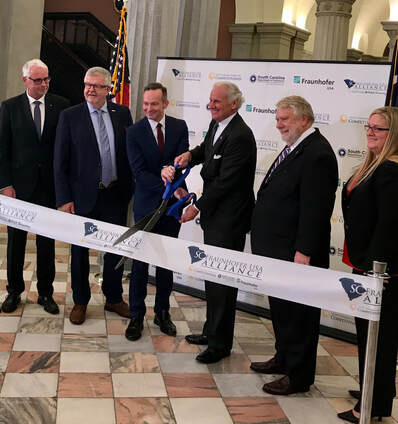
The 20-year partnership between Columbia, South Carolina and Kaiserslautern, Germany is filled with flourishing art exchange and ultimately “a common love for creativity.” Sister Cities International interviewed Dickson Monk, Executive Director of the Columbia World Affairs Council, on the cities’ art exchange, shared historical remembrance, Wunderbar Together events, and lasting citizen diplomacy. A press release for the Columbia World Affairs Council’s latest Wunderbar Together event, Heimat/Home: The 2019 Columbia–Kaiserslautern Artists Exchange, is available here.
SCI: Could you tell me a bit more about the partnership and programs between Columbia and Kaiserslautern? How can these programs continue to expand to address global challenges on a local scale?
While Columbia, South Carolina and Kaiserslautern, Germany officially became sister cities in 2000, the relationship began a couple of years prior. Discussions began in March of 1998 as a result of the Transatlantic Conferences, particularly the Tourism and Economic Development Conference in Bingen. During the conference, Columbia World Affairs Council (CWAC) representatives visited the new Business Innovation Center and the Fraunhofer Institute for Experimental Software Engineering. The Fraunhofer meeting would prove to have a great impact for South Carolina 20 years later with the recent founding of the South Carolina Fraunhofer USA Alliance. The relationship between the cities also expanded to a sister state pairing between South Carolina and Rhineland Pflaz, where Kaiserslautern (affectionately known as K-Town) is located.
Building on numerous cultural, academic, and economic exchanges over the past 20 years, the Columbia World Affairs Council was proud to host two major visits from Kaiserslautern in 2019:
First, during the early summer CWAC presented Stars and Stripes Over the Rhine, The American Occupation of Germany after WWI, 1918-1923. Then later in the fall, CWAC hosted Heimat/Home: The 2019 Columbia–Kaiserslautern Artists Exchange from September 30 through October 11. More on these exchanges below…
SCI: Could you tell me a bit more about the partnership and programs between Columbia and Kaiserslautern? How can these programs continue to expand to address global challenges on a local scale?
While Columbia, South Carolina and Kaiserslautern, Germany officially became sister cities in 2000, the relationship began a couple of years prior. Discussions began in March of 1998 as a result of the Transatlantic Conferences, particularly the Tourism and Economic Development Conference in Bingen. During the conference, Columbia World Affairs Council (CWAC) representatives visited the new Business Innovation Center and the Fraunhofer Institute for Experimental Software Engineering. The Fraunhofer meeting would prove to have a great impact for South Carolina 20 years later with the recent founding of the South Carolina Fraunhofer USA Alliance. The relationship between the cities also expanded to a sister state pairing between South Carolina and Rhineland Pflaz, where Kaiserslautern (affectionately known as K-Town) is located.
Building on numerous cultural, academic, and economic exchanges over the past 20 years, the Columbia World Affairs Council was proud to host two major visits from Kaiserslautern in 2019:
First, during the early summer CWAC presented Stars and Stripes Over the Rhine, The American Occupation of Germany after WWI, 1918-1923. Then later in the fall, CWAC hosted Heimat/Home: The 2019 Columbia–Kaiserslautern Artists Exchange from September 30 through October 11. More on these exchanges below…
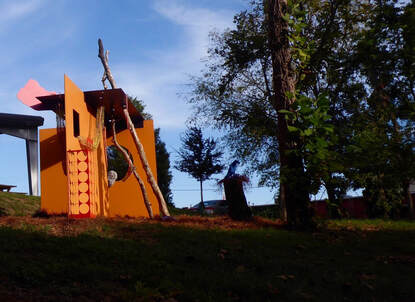
SCI: I understand that Columbia and Kaiserslautern recently participated in an artist exchange. Could you tell me more about this exchange, as well as other exchanges between the cities?
The Columbia World Affairs Council – in partnership with and with support from the Columbia Development Corporation, if ART Gallery, Lewis + Clark Studio, Stormwater Studios, the Embassy of the Federal Republic of Germany, and the Goethe-Institut in Washington, DC – presented Heimat/Home: The 2019 Columbia–Kaiserslautern Artists Exchange from September 30 through October 11. This was the latest in an artist exchange between Columbia and its sister city in Kaiserslautern, Germany. The 2019 symposium, celebrating both the 30th anniversary of the fall of the Berlin Wall and the 100th anniversary of Bauhaus (the enormously influential art school in Germany), features talks, an panel discussion, performances, and an exhibition by artists in both cities. It culminated in the unveiling of a collaborative public artwork created and installed on site at Stormwater Studios!
The Columbia World Affairs Council – in partnership with and with support from the Columbia Development Corporation, if ART Gallery, Lewis + Clark Studio, Stormwater Studios, the Embassy of the Federal Republic of Germany, and the Goethe-Institut in Washington, DC – presented Heimat/Home: The 2019 Columbia–Kaiserslautern Artists Exchange from September 30 through October 11. This was the latest in an artist exchange between Columbia and its sister city in Kaiserslautern, Germany. The 2019 symposium, celebrating both the 30th anniversary of the fall of the Berlin Wall and the 100th anniversary of Bauhaus (the enormously influential art school in Germany), features talks, an panel discussion, performances, and an exhibition by artists in both cities. It culminated in the unveiling of a collaborative public artwork created and installed on site at Stormwater Studios!
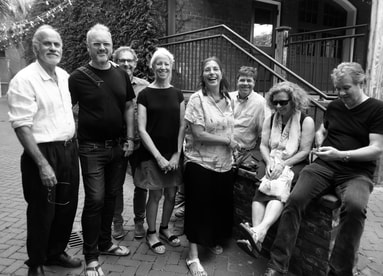
The Columbia artists who worked on the public artwork were Eileen Blyth, Michaela Pilar Brown, Stephen Chesley, Clark Ellefson, Mike Williams, and David H Yaghjian. The Kaiserslautern artists were Jörg Heieck, Reiner Mährlein, Silvia Rudolf, and Angelica Steinmacher. Columbia artist Janet Orselli and Columbia poet Al Black will be presenting performances and poetry readings by themselves and other Columbia poets and musicians.
The artists exchange between Columbia, S.C., and its German sister city Kaiserslautern started in 2000 with the shipment of a steel palmetto tree sculpture from Columbia to Kaiserslautern. Since 2001, some two dozen Columbia and Kaiserslautern artists have visited and worked in each other’s cities. Most recently, in 2016, Columbia artists participating in an exhibition, an outdoor installation project, and a multi-disciplinary performance in Kaiserslautern included Blyth, Brown, and Wideman-Davis Dance. In 2014, Columbia’s Congaree Vista Guild brought Mährlein and his Kaiserslautern colleague Klaus Hartmann to Columbia to create the public sculpture at the tunnel at Lady and Lincoln Streets. In 2012 and 2013, artists from both cities created two mural-size paintings that were exhibited in Columbia and Kaiserslautern.
The program included:
Creation of public artwork at Stormwater Studios at Pendleton and Huger Streets from September 30 – October 11
The Fall of the Wall, a talk by Dr. Agnes C. Mueller, director, University of South Carolina Global Studies Program, and Dr. Gerald McDermott, professor of international business, University of South Carolina Darla Moore School of Business, discussing Germany before, during, and after the fall of the Berlin Wall 30 years ago.
100 Years Bauhaus: Its Influence on Art & Architecture Then & Now, a talk by German native Mirjam Gerlach, Quackenbush Architects and Planners, Columbia, S.C., about one of most influential art schools in modern art and architecture.
Columbia Heimat unveiling reception.
The artists exchange between Columbia, S.C., and its German sister city Kaiserslautern started in 2000 with the shipment of a steel palmetto tree sculpture from Columbia to Kaiserslautern. Since 2001, some two dozen Columbia and Kaiserslautern artists have visited and worked in each other’s cities. Most recently, in 2016, Columbia artists participating in an exhibition, an outdoor installation project, and a multi-disciplinary performance in Kaiserslautern included Blyth, Brown, and Wideman-Davis Dance. In 2014, Columbia’s Congaree Vista Guild brought Mährlein and his Kaiserslautern colleague Klaus Hartmann to Columbia to create the public sculpture at the tunnel at Lady and Lincoln Streets. In 2012 and 2013, artists from both cities created two mural-size paintings that were exhibited in Columbia and Kaiserslautern.
The program included:
Creation of public artwork at Stormwater Studios at Pendleton and Huger Streets from September 30 – October 11
The Fall of the Wall, a talk by Dr. Agnes C. Mueller, director, University of South Carolina Global Studies Program, and Dr. Gerald McDermott, professor of international business, University of South Carolina Darla Moore School of Business, discussing Germany before, during, and after the fall of the Berlin Wall 30 years ago.
100 Years Bauhaus: Its Influence on Art & Architecture Then & Now, a talk by German native Mirjam Gerlach, Quackenbush Architects and Planners, Columbia, S.C., about one of most influential art schools in modern art and architecture.
Columbia Heimat unveiling reception.
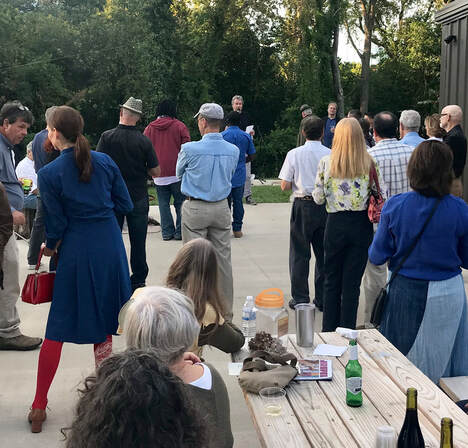
Artists’ Reception for Exhibition Opening of Heimat / Home: An exhibition of current and past participants in the artists exchange between Columbia, S.C, and Kaiserslautern, Germany. Current exchange participants are Eileen Blyth, Michaela Pilar Brown, Stephen Chesley, Janet Orselli, Mike Williams and David Yaghjian of Columbia and Kaiserslautern artists Jörg Heieck, Reiner Mährlein, Silvia Rudolf and Angelica Steinmacher. Past participants in the exhibition are Kaiserslautern artists Roland Albert and Klaus Hartmann.
Benefits of International Artists Exchange, a panel discussion with participants in the exchange between artists from Columbia and Kaiserslautern, Germany – which has been going on for almost 20 years – discuss the benefits of international exchange.
Since 1989: New Art in a Multicultural Germany, a talk by Dr. Peter Chametzky, art historian, University of South Carolina School of Visual Arts and Design (SVAD), about the changes in Germany art since the fall of the Berlin Wall and the influences of an increasingly multicultural landscape in the country.
And the grand finale was the unveiling of Columbia’s new public artwork at Stormwater Studios followed by performances and a reception. Performers included poetry by Al Black and Star, songs by Lang Owen, performances and songs by Janet Orselli, as well as poetry and songs by Cassie Premo Steel and Susanne Kappler.
“We are excited to welcome our friends from Kaiserslautern back to Columbia,” said Columbia World Affairs Council Executive Director Dickson Monk. “The collaborative exchange of artists between the sister cities, going back almost 20 years, continues to flourish with amazing creativity and depth. The visits are hallmarks of citizen diplomacy developing the cultural vibrancy of our cities with artwork for generations to enjoy as well as lifelong friendships between our communities. We look forward celebrating Columbia – Kaiserslautern’s close relationship over the next two weeks.”
The project is a partnership between the Columbia World Affairs Council (CWAC), the Columbia Development Corporation (CDC), if ART Gallery, Lewis + Clark Studio, and Stormwater Studios, all in Columbia, and the German Embassy and the Goethe-Institut in Washington, DC. Funding is provided by the Goethe-Institut, CDC, and CWAC. The funding from the Goethe-Institut is part of the organization’s nationwide initiative, Deutschlandjahr USA/Year of German-American Friendship, under the slogan Wunderbar Together/Germany and the U.S.
Benefits of International Artists Exchange, a panel discussion with participants in the exchange between artists from Columbia and Kaiserslautern, Germany – which has been going on for almost 20 years – discuss the benefits of international exchange.
Since 1989: New Art in a Multicultural Germany, a talk by Dr. Peter Chametzky, art historian, University of South Carolina School of Visual Arts and Design (SVAD), about the changes in Germany art since the fall of the Berlin Wall and the influences of an increasingly multicultural landscape in the country.
And the grand finale was the unveiling of Columbia’s new public artwork at Stormwater Studios followed by performances and a reception. Performers included poetry by Al Black and Star, songs by Lang Owen, performances and songs by Janet Orselli, as well as poetry and songs by Cassie Premo Steel and Susanne Kappler.
“We are excited to welcome our friends from Kaiserslautern back to Columbia,” said Columbia World Affairs Council Executive Director Dickson Monk. “The collaborative exchange of artists between the sister cities, going back almost 20 years, continues to flourish with amazing creativity and depth. The visits are hallmarks of citizen diplomacy developing the cultural vibrancy of our cities with artwork for generations to enjoy as well as lifelong friendships between our communities. We look forward celebrating Columbia – Kaiserslautern’s close relationship over the next two weeks.”
The project is a partnership between the Columbia World Affairs Council (CWAC), the Columbia Development Corporation (CDC), if ART Gallery, Lewis + Clark Studio, and Stormwater Studios, all in Columbia, and the German Embassy and the Goethe-Institut in Washington, DC. Funding is provided by the Goethe-Institut, CDC, and CWAC. The funding from the Goethe-Institut is part of the organization’s nationwide initiative, Deutschlandjahr USA/Year of German-American Friendship, under the slogan Wunderbar Together/Germany and the U.S.
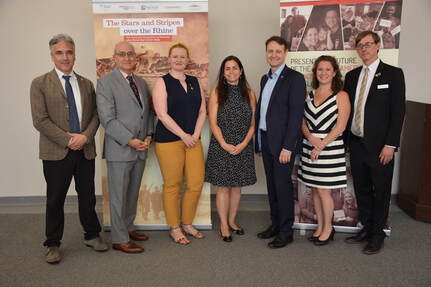
SCI: Could you tell me more about the recent exhibition that Columbia and Kaiserslautern collaborated on at the Atlantic Academy?
As part of the Wunderbar Together initiative, CWAC, in partnership with the Atlantische Akademie Rheinland-Pfalz e.V. the Koger Center for the Arts, as well as the Institut für Geschichtliche Landeskunde an der Universität Mainz e.V., and the WWI Centennial Commission, presented Stars and Stripes Over the Rhine, The American Occupation of Germany after WWI, 1918-1923. The exhibition, on view at the Koger Center for the Arts from May 31-June 30, 2019, highlighted the often forgotten history of the U.S. occupation of Germany after World War I and illustrates the multifaceted German-American relationship between 1918-1923. The show included panels of interesting historical information, rare pictures, and more. The exhibition was brought to Columbia by David Sirakov (director) and Sarah Wagner (education manager) of the Atlantic Academy, who were joined by Dr. Kai-Michael Sprenger, Institute of Historical Regional Studies, University of Mainz and David Hamon, Director, World War I Centennial Commission.
As part of the Wunderbar Together initiative, CWAC, in partnership with the Atlantische Akademie Rheinland-Pfalz e.V. the Koger Center for the Arts, as well as the Institut für Geschichtliche Landeskunde an der Universität Mainz e.V., and the WWI Centennial Commission, presented Stars and Stripes Over the Rhine, The American Occupation of Germany after WWI, 1918-1923. The exhibition, on view at the Koger Center for the Arts from May 31-June 30, 2019, highlighted the often forgotten history of the U.S. occupation of Germany after World War I and illustrates the multifaceted German-American relationship between 1918-1923. The show included panels of interesting historical information, rare pictures, and more. The exhibition was brought to Columbia by David Sirakov (director) and Sarah Wagner (education manager) of the Atlantic Academy, who were joined by Dr. Kai-Michael Sprenger, Institute of Historical Regional Studies, University of Mainz and David Hamon, Director, World War I Centennial Commission.
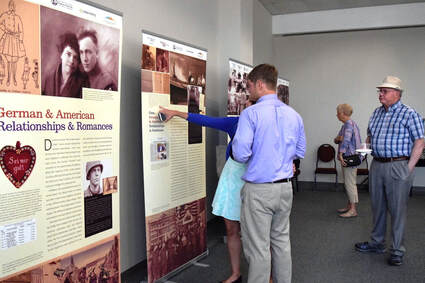
The opening reception on Friday, May 31, was a festive occasion and well-attended by local officials, CWAC members, and the general public. This program marked a new partnership between CWAC and the Koger Center for the Arts, which saw collaborations on two other exhibitions (both from Belgium) over the summer.
SCI: Do you have a particular anecdote, a lesson, or an experience that shows the meaning of these exchanges, including any lasting friendships/ties formed?
People-to-people exchanges are the most important bonds resulting from international exchanges. The exchange between Kaiserslautern and Columbia artists is a great example. The first exchange nearly 20 years ago resulted in lifelong friendships that have spawned numerous collaborations and exhibitions over the years in both cities. These activities grew organically out of a common love for creativity. Each year the artists look forward to possible visits, but always stay in close communication. The permanent public art works in both towns are a joy to be shared with generations to come.
SCI: In your experience, how does the citizen diplomacy and information exchange facilitated through this partnership build mutual respect, understanding, and cooperation?
Citizen diplomacy proves in a very real way that people are people, no matter the nationality. We all share the same hopes and dreams. It is truly magical to see people coming from diverse cultures coming together to discover common bonds that result in enduring friendships.
This blog post forms part of Sister Cities’ “Wunderbar Together” series, part of our ongoing involvement in “Wunderbar Together,” funded by the German Federal Foreign Office, implemented by the Goethe-Institut, and supported by the Federation of German Industries (BDI). This year, we are showcasing stories that highlight the impact of German-American exchange on the local level, as well as the heritage, interests, and common values shared by the United States and Germany. To submit your own experience with German-American exchange or involvement in a German-American sister city partnership, please fill out our form here.
SCI: Do you have a particular anecdote, a lesson, or an experience that shows the meaning of these exchanges, including any lasting friendships/ties formed?
People-to-people exchanges are the most important bonds resulting from international exchanges. The exchange between Kaiserslautern and Columbia artists is a great example. The first exchange nearly 20 years ago resulted in lifelong friendships that have spawned numerous collaborations and exhibitions over the years in both cities. These activities grew organically out of a common love for creativity. Each year the artists look forward to possible visits, but always stay in close communication. The permanent public art works in both towns are a joy to be shared with generations to come.
SCI: In your experience, how does the citizen diplomacy and information exchange facilitated through this partnership build mutual respect, understanding, and cooperation?
Citizen diplomacy proves in a very real way that people are people, no matter the nationality. We all share the same hopes and dreams. It is truly magical to see people coming from diverse cultures coming together to discover common bonds that result in enduring friendships.
This blog post forms part of Sister Cities’ “Wunderbar Together” series, part of our ongoing involvement in “Wunderbar Together,” funded by the German Federal Foreign Office, implemented by the Goethe-Institut, and supported by the Federation of German Industries (BDI). This year, we are showcasing stories that highlight the impact of German-American exchange on the local level, as well as the heritage, interests, and common values shared by the United States and Germany. To submit your own experience with German-American exchange or involvement in a German-American sister city partnership, please fill out our form here.
Columbia World Affairs Council Announces Tia Nelson’s Departure,
Gains New Fellow, Doria Kim
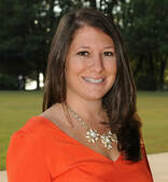
Columbia World Affairs Council (CWAC) announces Communications and Development Director Tia Nelson will be transitioning to Board of Directors as she joins the Office of Innovation at South Carolina Department of Commerce in September. Nelson will become one of several other board members serving in a leading economic development capacity statewide.
"Within several months, Tia made a great impact developing new partners and programs for the Council,” said CWAC Executive Director Dickson Monk. “She remains an active and important member of our Board of Directors. We are excited for her new role and look forward to strengthening our already close work with the SC Dept. of Commerce and the Office of Innovation."
“It’s been an incredible journey as first an active member, then board member and internal director at the World Affairs Council," said Nelson. "It’s very easy to recognize the strength of the international family, both in Columbia and throughout our sister cities network, which drives our organization to serve on the front end of global competitiveness and with unbeatable Southern hospitality. I will greatly miss the daily adventures of the Council’s core team, but I’m also looking forward to helping bridge some of our most innovative initiatives in my role at Department of Commerce and as a Board Member. I can’t wait to see what comes of Doria’s impact and all of the current momentum that continues to escalate for 27 straight years”
"Within several months, Tia made a great impact developing new partners and programs for the Council,” said CWAC Executive Director Dickson Monk. “She remains an active and important member of our Board of Directors. We are excited for her new role and look forward to strengthening our already close work with the SC Dept. of Commerce and the Office of Innovation."
“It’s been an incredible journey as first an active member, then board member and internal director at the World Affairs Council," said Nelson. "It’s very easy to recognize the strength of the international family, both in Columbia and throughout our sister cities network, which drives our organization to serve on the front end of global competitiveness and with unbeatable Southern hospitality. I will greatly miss the daily adventures of the Council’s core team, but I’m also looking forward to helping bridge some of our most innovative initiatives in my role at Department of Commerce and as a Board Member. I can’t wait to see what comes of Doria’s impact and all of the current momentum that continues to escalate for 27 straight years”
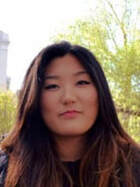
This transition happens as Doria Kim steps into a membership development and management role as the Council’s newest Fellow. Kim earned her B.A. from the University of South Carolina in Political Science and Economics. For study abroad, she attended Moscow State University to advance her knowledge in Russian language, politics, and economics. Through her interests in both domestic and international affairs, she has interned at the federal, municipal, and non-profit organization level. She was a political intern for the State Department at the U.S. Embassy in Seoul, Korea Chair research intern at the Center for Strategic and International Studies, Mayor’s Fellow at the Office of Mayor Steve Benjamin, and Program and Membership Coordinator intern at the Columbia World Affairs Council.
Since 1993, Columbia World Affairs Council has been at the forefront of international competitiveness on both the regional and state level. Beginning with a passionate board of directors, several still serving or involved, the World Affairs Council fostered relationships that would eventually further the recruitment efforts of manufacturing giants, BMW, among others, to our state. Today, we are growing our ability to support economic development efforts, provide great educational programs, and connect our community with their counterparts around the globe.
As the Council looks forward to hosting its 26th annual Global Vision Award Dinner honoring Claflin University President Dr. Henry Tisdale on October 23, and many other exciting programs in 2020, it hopes to expand the involvement of its members and neighbors in creating new opportunities to benefit the community.
Email [email protected] to join the newsletter or learn more about our membership committee and international activities in the Midlands.
Since 1993, Columbia World Affairs Council has been at the forefront of international competitiveness on both the regional and state level. Beginning with a passionate board of directors, several still serving or involved, the World Affairs Council fostered relationships that would eventually further the recruitment efforts of manufacturing giants, BMW, among others, to our state. Today, we are growing our ability to support economic development efforts, provide great educational programs, and connect our community with their counterparts around the globe.
As the Council looks forward to hosting its 26th annual Global Vision Award Dinner honoring Claflin University President Dr. Henry Tisdale on October 23, and many other exciting programs in 2020, it hopes to expand the involvement of its members and neighbors in creating new opportunities to benefit the community.
Email [email protected] to join the newsletter or learn more about our membership committee and international activities in the Midlands.
Global Spotlight: A Conversation with Mayor Bob Coble
September 5, 2019
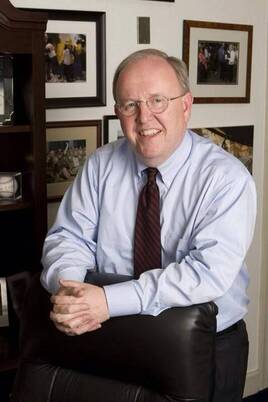
Columbia World Affairs Council (CWAC) intern Lydia DeFelice interviewed Bob Coble last month to gain personal insight in his mission to build global engagement in Columbia.
Lydia currently studies International Relations at the University of Edinburgh. Her interest in global relations has led her to interview individuals, such as Bob Coble, who have contributed in promoting international activities in Columbia.
Bob Coble, former Mayor of the City of Columbia, joined the Columbia World Affairs Council as Chairman in 2010. Aside from his leadership in Columbia World Affairs Council, Mayor Bob, as he is affectionately known, serves as chair of Nexsen Pruet’s South Carolina Public Policy and Governmental Affairs Group. He has also been named Ambassador of the Year by the Greater Columbia Chamber of Commerce and serves on the Columbia Urban League Board and S.C. Advisory Board of the U.S. Global Leadership Coalition.
Lydia DeFelice:
What initially prompted you to launch the Columbia World Affairs Council? What was your ultimate goal for global engagement in Columbia?
Bob Coble:
Two things. Firstly, Fred Monk and George Wolfe were the ones who started CWAC. Now it’s been running for over 25 years. I was Mayor when it was founded, but it really stemmed from a column that Fred Monk wrote when he worked for The State Newspaper about global involvement. At the same time, I was Mayor and we were trying to aggressively market ourselves and go on international trips for economic development, so the two combined together. I did not become chair of CWAC until I left being Mayor. Economic development was the driving force for me.
Lydia DeFelice:
Was there a personal experience that prompted this path for you?
Bob Coble:
I majored in Government and International Affairs (GENT) at USC, but I had not traveled abroad in any way yet. I was on the Richland County Council and we had been on trips but not overseas. That started when I was Mayor. On our first trip to Germany, I said I’d be our cracker-jack and I got a German professor at USC to teach me German words and phrases that I would need. I got there and quickly determined that everyone spoke English and they preferred it so they could practice.
Lydia DeFelice:
How has Columbia changed during your time as a resident and from your perspective as a Mayor?
Bob Coble:
I think Columbia in some ways, from an international standpoint, has always been the University of South Carolina and has always had a major footprint in international affairs because of that. Moreover, we have the military post. Our sister city is Kaiserslautern in Germany and that’s what the military post calls K-town, so we have a lot of connections there. The renaissance of Columbia that was started over a period of time has really come to fruition. If you look at the Convention Center, that was something we worked on for many years that opened in 2004. For Main St., streetscaping had to occur. We went to other cities Main Streets to learn how they were effective.
Lydia DeFelice:
What would you like to see from Columbia in ten years?
Bob Coble:
I would like to see the Convention Center expanded. We need a Convention Center Hotel that would take into account the expanded convention.
Secondly, an expansion of USC towards the river is important. The BullStreet District will be a major development for Columbia too. I would like to see that successfully completed and continue that momentum.
Lydia DeFelice:
What does Columbia have that other cities do not?
Bob Coble:
Our advantages are a major research university, a major military post in the city limits, a beautiful river in the middle of the metro area, and a vibrant downtown! So, when you talk about the Convention Center expanding, it will do so in the heart of the Vista where you have restaurants and everything is walkable, so it is situated perfectly.
Lydia DeFelice:
What can Columbia learn from other cities?
Bob Coble:
I think we can always learn from other places and see what works. When I was Mayor, we would always go on a trip to another city to learn from them. We learned a lot from Atlanta in terms of how Georgia Tech’s research benefited them. Austin was a particularly good example. They have the University of Texas and a major river running through the town, so they have a lot of similarities to Columbia. Raleigh was another good one. They have a major research campus in the city limits, it is different from ours because it was a state park, but we learned a lot from that.
Lydia DeFelice:
Is there a specific candidate for the 2020 Presidential Election that shows valuable engagement with world affairs?
Bob Coble:
You would have to start with Vice President Biden. He clearly has a long track record of being involved with foreign affairs. Of course, the US Global Leadership Coalition is trying to meet with the various candidates. I am impressed with a number of candidates, one being Cory Booker. He was Mayor of Newark while I was Mayor, so I got to see him in action. The same goes for Julian Castro. Beto has the experience of being in El Paso, that really is an international city. Lastly, Kamala Harris, you can’t be Senator of California if you aren’t a part of the international community.
Lydia DeFelice:
What is your best advice for students and young people as they begin their careers?
Bob Coble:
The best advice I ever got was from my law school roommate, Leigh, which was to return every phone call every day. That sets the tone for never putting things off or putting people off. It is something I think, no matter what your goal in life, is very good advice. It allows you never to be perceived as arrogant, aloof, or distant, always in touch. From that approach, I think they call me Mayor Bob, and I think they did that because of the accessibility. You can’t be accessible if you don’t return every phone call.
Lydia currently studies International Relations at the University of Edinburgh. Her interest in global relations has led her to interview individuals, such as Bob Coble, who have contributed in promoting international activities in Columbia.
Bob Coble, former Mayor of the City of Columbia, joined the Columbia World Affairs Council as Chairman in 2010. Aside from his leadership in Columbia World Affairs Council, Mayor Bob, as he is affectionately known, serves as chair of Nexsen Pruet’s South Carolina Public Policy and Governmental Affairs Group. He has also been named Ambassador of the Year by the Greater Columbia Chamber of Commerce and serves on the Columbia Urban League Board and S.C. Advisory Board of the U.S. Global Leadership Coalition.
Lydia DeFelice:
What initially prompted you to launch the Columbia World Affairs Council? What was your ultimate goal for global engagement in Columbia?
Bob Coble:
Two things. Firstly, Fred Monk and George Wolfe were the ones who started CWAC. Now it’s been running for over 25 years. I was Mayor when it was founded, but it really stemmed from a column that Fred Monk wrote when he worked for The State Newspaper about global involvement. At the same time, I was Mayor and we were trying to aggressively market ourselves and go on international trips for economic development, so the two combined together. I did not become chair of CWAC until I left being Mayor. Economic development was the driving force for me.
Lydia DeFelice:
Was there a personal experience that prompted this path for you?
Bob Coble:
I majored in Government and International Affairs (GENT) at USC, but I had not traveled abroad in any way yet. I was on the Richland County Council and we had been on trips but not overseas. That started when I was Mayor. On our first trip to Germany, I said I’d be our cracker-jack and I got a German professor at USC to teach me German words and phrases that I would need. I got there and quickly determined that everyone spoke English and they preferred it so they could practice.
Lydia DeFelice:
How has Columbia changed during your time as a resident and from your perspective as a Mayor?
Bob Coble:
I think Columbia in some ways, from an international standpoint, has always been the University of South Carolina and has always had a major footprint in international affairs because of that. Moreover, we have the military post. Our sister city is Kaiserslautern in Germany and that’s what the military post calls K-town, so we have a lot of connections there. The renaissance of Columbia that was started over a period of time has really come to fruition. If you look at the Convention Center, that was something we worked on for many years that opened in 2004. For Main St., streetscaping had to occur. We went to other cities Main Streets to learn how they were effective.
Lydia DeFelice:
What would you like to see from Columbia in ten years?
Bob Coble:
I would like to see the Convention Center expanded. We need a Convention Center Hotel that would take into account the expanded convention.
Secondly, an expansion of USC towards the river is important. The BullStreet District will be a major development for Columbia too. I would like to see that successfully completed and continue that momentum.
Lydia DeFelice:
What does Columbia have that other cities do not?
Bob Coble:
Our advantages are a major research university, a major military post in the city limits, a beautiful river in the middle of the metro area, and a vibrant downtown! So, when you talk about the Convention Center expanding, it will do so in the heart of the Vista where you have restaurants and everything is walkable, so it is situated perfectly.
Lydia DeFelice:
What can Columbia learn from other cities?
Bob Coble:
I think we can always learn from other places and see what works. When I was Mayor, we would always go on a trip to another city to learn from them. We learned a lot from Atlanta in terms of how Georgia Tech’s research benefited them. Austin was a particularly good example. They have the University of Texas and a major river running through the town, so they have a lot of similarities to Columbia. Raleigh was another good one. They have a major research campus in the city limits, it is different from ours because it was a state park, but we learned a lot from that.
Lydia DeFelice:
Is there a specific candidate for the 2020 Presidential Election that shows valuable engagement with world affairs?
Bob Coble:
You would have to start with Vice President Biden. He clearly has a long track record of being involved with foreign affairs. Of course, the US Global Leadership Coalition is trying to meet with the various candidates. I am impressed with a number of candidates, one being Cory Booker. He was Mayor of Newark while I was Mayor, so I got to see him in action. The same goes for Julian Castro. Beto has the experience of being in El Paso, that really is an international city. Lastly, Kamala Harris, you can’t be Senator of California if you aren’t a part of the international community.
Lydia DeFelice:
What is your best advice for students and young people as they begin their careers?
Bob Coble:
The best advice I ever got was from my law school roommate, Leigh, which was to return every phone call every day. That sets the tone for never putting things off or putting people off. It is something I think, no matter what your goal in life, is very good advice. It allows you never to be perceived as arrogant, aloof, or distant, always in touch. From that approach, I think they call me Mayor Bob, and I think they did that because of the accessibility. You can’t be accessible if you don’t return every phone call.
Global Spotlight with Restaurateur Kristian Niemi
July 24, 2019
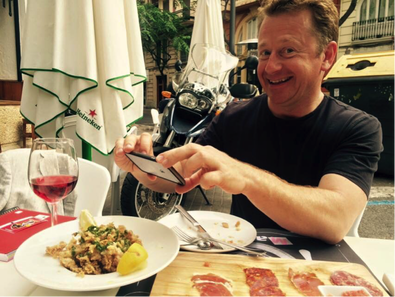 Lydia and Kristian enjoying a charcuterie board in Valencia, Spain.
Lydia and Kristian enjoying a charcuterie board in Valencia, Spain.
Columbia World Affairs Council intern Lydia DeFelice, born and raised in Columbia, interviewed Kristian Niemi last week to learn more about how his world travels have influenced his career in food and beverage.
Lydia currently studies International Relations at the University of Edinburgh. Her Southern, agricultural upbringing and interest in global relations sparked her curiosity toward local chef and restaurateur, Kristian Niemi.
Kristian Niemi has opened some of Columbia's most popular restaurants, including Mr. Friendly's, Gervais & Vine, Rosso Trattoria Italia, Solstice Kitchen & Wine Bar, and Bourbon. Coming soon is his new restaurant, Black Rooster.
Lydia: Where was your first trip outside of the US?
Kristian: My first trip outside the US was to Jordan by way of the Gulf of Aquaba on the Red Sea. I went there to work with the Jordanian Special Forces near the Syrian border when I was 20.
Lydia: Have you studied a foreign language?
Kristian: Yes, I studied Farsi at the Defense Language Institute in Monterey, CA. Since then, I have made it a point to learn at least SOME of the language of wherever I’m traveling.
Lydia: What has been your most transformative travel experience?
Kristian: Every time I travel something, no matter how big or small, transforms me in one way or another.
Lydia: How have your travels influenced your restaurant concepts?
Kristian: Gervais & Vine would never have become a tapas bar without my trip to Spain. Sitting at Cal Pep in Barcelona, I just said to myself, “Why am I not doing this at G’nV?” As soon as I returned, I completely redesigned the back bar and installed a kitchen to crank out tapas.
Lydia: What do you see as the connection between business and charity?
Kristian: I don’t think you can do one without the other. I believe in the adage “the more you give, the more you receive”, so we give a lot. We don’t make a big deal about it. It’s mostly done very quietly, but those who are involved in the charities we support know, and the word gets out. We don’t do it for publicity. We do it because we believe in our community.
Lydia: What do other countries do in terms of food/farm that you would like to see our state/country learn from?
Kristian: Less emphasis on Big Ag, and more support of family farms. Period.
Lydia: Some have espoused concern that large, corporate farms like Monsanto may have done more community harm than good due to introduction of GM and harmful practices. What are your thoughts on that topic?
Kristian: I don’t believe they’ve done more harm than good. More people than ever before in the history of mankind have access to good, nutritious food because of their advances. However, just because they can produce LOTS of food, it doesn’t mean they produce good tasting food. That’s something only small scale farming seems to be able to accomplish. I’d like to see our country support the small farm more than they currently do.
Lydia: What’s your perspective on how the Columbia food scene has changed since you moved here?
Kristian: It has changed considerably. There are a LOT more restaurants than there were when I moved here, and many of them are really interesting and have great quality. We’ve also seen more restaurants using local farms for their produce, meat, and dairy.
Lydia: In the future, what do you hope will develop in Columbia as we try to grow as a city?
Kristian: We could still use some more quality restaurants and it would be nice if Columbians would actually participate in all of the good things we have happening. I tend to see the same people at every event, while at the same time hearing others say, “there’s nothing to do in Columbia” and it drives me crazy. I think Columbia is progressing really well and I look forward to seeing how the city continues to grow. It’s been fun being a part of its growth and I hope to continue!
Lydia currently studies International Relations at the University of Edinburgh. Her Southern, agricultural upbringing and interest in global relations sparked her curiosity toward local chef and restaurateur, Kristian Niemi.
Kristian Niemi has opened some of Columbia's most popular restaurants, including Mr. Friendly's, Gervais & Vine, Rosso Trattoria Italia, Solstice Kitchen & Wine Bar, and Bourbon. Coming soon is his new restaurant, Black Rooster.
Lydia: Where was your first trip outside of the US?
Kristian: My first trip outside the US was to Jordan by way of the Gulf of Aquaba on the Red Sea. I went there to work with the Jordanian Special Forces near the Syrian border when I was 20.
Lydia: Have you studied a foreign language?
Kristian: Yes, I studied Farsi at the Defense Language Institute in Monterey, CA. Since then, I have made it a point to learn at least SOME of the language of wherever I’m traveling.
Lydia: What has been your most transformative travel experience?
Kristian: Every time I travel something, no matter how big or small, transforms me in one way or another.
Lydia: How have your travels influenced your restaurant concepts?
Kristian: Gervais & Vine would never have become a tapas bar without my trip to Spain. Sitting at Cal Pep in Barcelona, I just said to myself, “Why am I not doing this at G’nV?” As soon as I returned, I completely redesigned the back bar and installed a kitchen to crank out tapas.
Lydia: What do you see as the connection between business and charity?
Kristian: I don’t think you can do one without the other. I believe in the adage “the more you give, the more you receive”, so we give a lot. We don’t make a big deal about it. It’s mostly done very quietly, but those who are involved in the charities we support know, and the word gets out. We don’t do it for publicity. We do it because we believe in our community.
Lydia: What do other countries do in terms of food/farm that you would like to see our state/country learn from?
Kristian: Less emphasis on Big Ag, and more support of family farms. Period.
Lydia: Some have espoused concern that large, corporate farms like Monsanto may have done more community harm than good due to introduction of GM and harmful practices. What are your thoughts on that topic?
Kristian: I don’t believe they’ve done more harm than good. More people than ever before in the history of mankind have access to good, nutritious food because of their advances. However, just because they can produce LOTS of food, it doesn’t mean they produce good tasting food. That’s something only small scale farming seems to be able to accomplish. I’d like to see our country support the small farm more than they currently do.
Lydia: What’s your perspective on how the Columbia food scene has changed since you moved here?
Kristian: It has changed considerably. There are a LOT more restaurants than there were when I moved here, and many of them are really interesting and have great quality. We’ve also seen more restaurants using local farms for their produce, meat, and dairy.
Lydia: In the future, what do you hope will develop in Columbia as we try to grow as a city?
Kristian: We could still use some more quality restaurants and it would be nice if Columbians would actually participate in all of the good things we have happening. I tend to see the same people at every event, while at the same time hearing others say, “there’s nothing to do in Columbia” and it drives me crazy. I think Columbia is progressing really well and I look forward to seeing how the city continues to grow. It’s been fun being a part of its growth and I hope to continue!
Nov. 29, 2018
GLOBAL ALLIANCE FOR SOUTH CAROLINA ANNOUNCES COLLABORATIVE FUNDING OPPORTUNITY
South Carolina-Estonia Industry R&D Program Launches Initial Request for Project Proposals
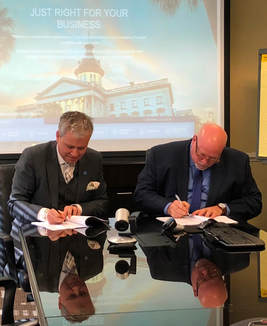 Viljar Lubi (left), Estonia’s Deputy Secretary General for Economic Development, and Jim Melville, President and CEO of the Global Alliance of South Carolina, sign the SC-Estonia Industry R&D Program agreement at the SC Dept. of Commerce on Nov. 29, 2018.
Viljar Lubi (left), Estonia’s Deputy Secretary General for Economic Development, and Jim Melville, President and CEO of the Global Alliance of South Carolina, sign the SC-Estonia Industry R&D Program agreement at the SC Dept. of Commerce on Nov. 29, 2018.
Today, in a ceremony at the South Carolina Department of Commerce, Jim Melville, President and CEO of the Global Alliance of South Carolina (GASC), joined Viljar Lubi, Estonia’s Deputy Secretary General for Economic Development to sign an agreement that formally launches the South Carolina-Estonia Industry R&D Program, and issues the first call for binational R&D project proposals. This program implements one of the key objectives in the Agreement between the Government of the Republic of Estonia and the Government of the State of South Carolina on Bilateral Cooperation in Industrial and Technological Research and Development, signed in April 2016.
The signing of this agreement initiates the first Request for Proposals within the framework of the Industry Research and Development Program. The focus of this RFP will be on collaborations involving information and communication technologies, health technologies and services, and technologies that increase the effectiveness of resources.
The RFP process will be executed in two steps. First, interested partners must complete and submit an application for bilateral funding to Enterprise Estonia (EE) and GASC not later than January 29, 2019. After an initial screening of the project concept EE and GASC will invite formal proposals from qualified and eligible applicant teams.
To access the full text of the RFP, including funding availability, eligibility criteria and application instructions, please visit www.globalallianceforsc.org.
Jim Melville stated, “This program creates a wonderful opportunity for collaboration toward achieving business outcomes that simply would not be possible for parties operating alone.”
“We’re excited to celebrate the launch of this new opportunity,” said Secretary of Commerce Bobby Hitt. “As a state with a globally-connected economy, we understand the importance of working with industry leaders in other nations to promote a mutually-beneficial economic partnership. I look forward to seeing the innovative industry advancements that result from this program.”
Background:
The Global Alliance for South Carolina (GASC) is a non-profit, tax-exempt organization, whose mission is to stimulate business, economic growth, and research partnerships involving companies and academic institutions in South Carolina, Israel, and Estonia as an independent way to generate economic development, jobs, and university joint programs. In fulfilling its mission, GASC collaborates with the following:
For more information on the Global Alliance for South Carolina, and the SC-Estonia Industry R&D Program, please contact Russ Keller, GASC Executive Director, at [email protected] or visit www.globalallianceforsc.org.
The signing of this agreement initiates the first Request for Proposals within the framework of the Industry Research and Development Program. The focus of this RFP will be on collaborations involving information and communication technologies, health technologies and services, and technologies that increase the effectiveness of resources.
The RFP process will be executed in two steps. First, interested partners must complete and submit an application for bilateral funding to Enterprise Estonia (EE) and GASC not later than January 29, 2019. After an initial screening of the project concept EE and GASC will invite formal proposals from qualified and eligible applicant teams.
To access the full text of the RFP, including funding availability, eligibility criteria and application instructions, please visit www.globalallianceforsc.org.
Jim Melville stated, “This program creates a wonderful opportunity for collaboration toward achieving business outcomes that simply would not be possible for parties operating alone.”
“We’re excited to celebrate the launch of this new opportunity,” said Secretary of Commerce Bobby Hitt. “As a state with a globally-connected economy, we understand the importance of working with industry leaders in other nations to promote a mutually-beneficial economic partnership. I look forward to seeing the innovative industry advancements that result from this program.”
Background:
The Global Alliance for South Carolina (GASC) is a non-profit, tax-exempt organization, whose mission is to stimulate business, economic growth, and research partnerships involving companies and academic institutions in South Carolina, Israel, and Estonia as an independent way to generate economic development, jobs, and university joint programs. In fulfilling its mission, GASC collaborates with the following:
- In South Carolina: the South Carolina Department of Commerce, Advanced Technology International (ATI), SCRA’s “SC Launch” Program, the Charleston Regional Development Alliance, the College of Charleston, the Medical University of South Carolina, The Citadel, the University of South Carolina, and Clemson University
- In Israel: the Israel Innovation Authority (IIA) and various academic research institutions and start-up business incubators
- In Estonia: the Ministry of Economic Affairs and Communications, the University of Tartu, and Tallinn University of Technology
For more information on the Global Alliance for South Carolina, and the SC-Estonia Industry R&D Program, please contact Russ Keller, GASC Executive Director, at [email protected] or visit www.globalallianceforsc.org.
June 9th, 2018
Summer Spent in Shanghai
Michaela Fox
Hello! My name is Michaela, and I am spending my summer abroad in Shanghai, China, working with Xie Fei Education market after-school programs and teaching English classes.
So far, I’ve been in two weeks of 7-hour Chinese language courses in preparation for my internship. Being in Shanghai, I am getting to experience a city-life unlike any other in South Carolina. The population of the greater Shanghai area is about 24 million and has skyscrapers that seem to surround you everywhere you go!
One of my favorite places in the city is Nanjing Road, Shanghai’s version of Times Square. Nanjing is the place to go to get all your Western shopping needs taken care of, not to mention it has the largest Starbucks in the world, and has plenty of local stands to try as much authentic street food as you could want!
But Shanghai itself reflects a lot of traditional Chinese culture, from its architecture to its festivals to even having a small-town atmosphere. Much like life in smaller Chinese villages, there are pockets of Shanghai that continue the custom of dying their own calico fabrics in the city and then drying them over these tall racks, thus creating a very mystical feeling around the village.
I have also experienced the traditional holiday known as the Dragon Boat Festival. The event commemorates an admirable official from the Warring States Period who killed himself after his king banished him to the southern region by racing crew boats that are decorated like dragons. The festival also includes delicious sticky rice snacks that are stuffed with meat or sweets called ZongZi. Luckily for us, we got the day off from Chinese class to enjoy it.
My trip has not been constrained to just cosmopolitan Shanghai, but we have had the opportunities to see the countryside, dramatic scenes of nature, and old Chinese villages. You can see some of the pictures that I captured while on these weekend trips at the bottom of this post!
One weekend, I took a 7-hour bus ride to the Yellow Mountains, hiked for 4 hours (which to the Chinese actually means climbing incredibly steep stairs), and then reached the top to only find a blocked view because of rain clouds! But eventually on our trip, we hiked to a waterfall to find much better views of the beautiful, natural Chinese landscape.
Apparently, there are aggressive monkeys in these woods but luckily no one was attacked. These mountains are also the location of the filming for the famous Kungfu movie “Crouching Tiger Hidden Dragon,” which is coincidentally very famous outside of China but considered a lesser quality Kungfu movie to the Chinese.
I also got to take a weekend trip to Wuzhen, which is a “water town” – similar to Venice, Italy. It was interesting to compare this small tourist town to the bustling life that I have become accustomed to in Shanghai. In the smaller town of Wuzhen, the local people were more shocked to see foreigners, and our group caught some taking photos of us from afar. In Shanghai, they prefer you to take the photo with them and/or their babies!
The biggest difference that I have noticed thus far between the culture here and that of the United States is how the Chinese approach privacy. I have experienced everything from co-ed bathrooms without stalls on the doors to old men walking around in their boxers. I have even seen babies with the backs cut out of their pants so they can use the restroom in the streets. Luckily, this culture shock is not usually this severe. My biggest challenges that I face in Shanghai are getting used to the large crowds everywhere (and all the time) while not being able to breathe as easily as I am accustomed to back home.
Although the experience has just begun, I have been so fortunate to see and do things that have pushed me out of my comfort zone! Life here is so different but beautiful in all its centuries upon centuries of history, culture, and life.
I can’t wait to see what the next 6 weeks hold for me!
So far, I’ve been in two weeks of 7-hour Chinese language courses in preparation for my internship. Being in Shanghai, I am getting to experience a city-life unlike any other in South Carolina. The population of the greater Shanghai area is about 24 million and has skyscrapers that seem to surround you everywhere you go!
One of my favorite places in the city is Nanjing Road, Shanghai’s version of Times Square. Nanjing is the place to go to get all your Western shopping needs taken care of, not to mention it has the largest Starbucks in the world, and has plenty of local stands to try as much authentic street food as you could want!
But Shanghai itself reflects a lot of traditional Chinese culture, from its architecture to its festivals to even having a small-town atmosphere. Much like life in smaller Chinese villages, there are pockets of Shanghai that continue the custom of dying their own calico fabrics in the city and then drying them over these tall racks, thus creating a very mystical feeling around the village.
I have also experienced the traditional holiday known as the Dragon Boat Festival. The event commemorates an admirable official from the Warring States Period who killed himself after his king banished him to the southern region by racing crew boats that are decorated like dragons. The festival also includes delicious sticky rice snacks that are stuffed with meat or sweets called ZongZi. Luckily for us, we got the day off from Chinese class to enjoy it.
My trip has not been constrained to just cosmopolitan Shanghai, but we have had the opportunities to see the countryside, dramatic scenes of nature, and old Chinese villages. You can see some of the pictures that I captured while on these weekend trips at the bottom of this post!
One weekend, I took a 7-hour bus ride to the Yellow Mountains, hiked for 4 hours (which to the Chinese actually means climbing incredibly steep stairs), and then reached the top to only find a blocked view because of rain clouds! But eventually on our trip, we hiked to a waterfall to find much better views of the beautiful, natural Chinese landscape.
Apparently, there are aggressive monkeys in these woods but luckily no one was attacked. These mountains are also the location of the filming for the famous Kungfu movie “Crouching Tiger Hidden Dragon,” which is coincidentally very famous outside of China but considered a lesser quality Kungfu movie to the Chinese.
I also got to take a weekend trip to Wuzhen, which is a “water town” – similar to Venice, Italy. It was interesting to compare this small tourist town to the bustling life that I have become accustomed to in Shanghai. In the smaller town of Wuzhen, the local people were more shocked to see foreigners, and our group caught some taking photos of us from afar. In Shanghai, they prefer you to take the photo with them and/or their babies!
The biggest difference that I have noticed thus far between the culture here and that of the United States is how the Chinese approach privacy. I have experienced everything from co-ed bathrooms without stalls on the doors to old men walking around in their boxers. I have even seen babies with the backs cut out of their pants so they can use the restroom in the streets. Luckily, this culture shock is not usually this severe. My biggest challenges that I face in Shanghai are getting used to the large crowds everywhere (and all the time) while not being able to breathe as easily as I am accustomed to back home.
Although the experience has just begun, I have been so fortunate to see and do things that have pushed me out of my comfort zone! Life here is so different but beautiful in all its centuries upon centuries of history, culture, and life.
I can’t wait to see what the next 6 weeks hold for me!
March 12, 2018
Losing an Enemy: The Risk of War with Iran
by Austin Nix
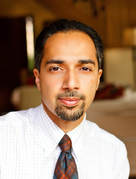 Trita Parsi
Trita Parsi
For Trita Parsi, president of the National Iranian American Council and professor at the Edmund A. Walsh School of Foreign Service at Georgetown University, the Iran nuclear deal was designed from a series of internal developments and a variety of secret negotiations going on behind the scenes. More formally known as the Joint Comprehensive Plan of Action (JCPOA), the agreement’s international role is best revealed through informal discussions amongst the seventy-five individuals on both sides that Mr. Parsi had interviewed along the way for both his advisement to the Obama administration and his latest book, “Losing an Enemy: Obama, Iran and the Triumph of Diplomacy” (2017, Yale University Press).
An award-winning author and a leading expert on U.S.-Iranian relations, Trita Parsi will speak on the various forms of diplomacy that led to the nuclear deal, the risk of a potential U.S.-Iranian armed conflict, and his thoughts on recent domestic events within Iran at “The Risk of War with Iran: a talk by Trita Parsi,” an event hosted by the Columbia World Affairs Council, Tuesday, March 13, from 12pm to 2pm, at The Palmetto Club (1231 Sumter Street).
“Losing an Enemy” certainly serves as a treatment of the many backstories that the Obama administration conducted with Iran leading up to the deal, but also emphasizes that the same issues reach beyond any restriction or maintenance of Iran’s nuclear program. Parsi is also recognized in high regard for his 2007 book, “Treacherous Alliance: The Secret Dealings of Israel, Iran and the United States,” which won the Council on Foreign Relations’ Arthur Ross Book Award and the Grawemeyer Award for Ideas Improving World Order.
Decades of U.S.-led sanctions related to Iran’s nuclear program and proliferation date back to 1979, the year of the Iranian Revolution. The Iranian government has repeatedly stated its nuclear program is utilized nationally for electricity, medical purposes, and other forms of resources for Iranian civilians. These claims have done little to stop the U.S. and the UN Security Council from imposing sanctions each decade that target Iranian investments in or exports of oil and any form of financial cooperation with the Iranian Revolutionary Guard Corps (IRGC), a branch of Iran’s Armed Forces with operations beyond Iran’s borders related to foreign interference or threats to its Islamic Republic system. Such targeting of the IRGC has ranged from domain name and web-hosting services to banking transactions.
An award-winning author and a leading expert on U.S.-Iranian relations, Trita Parsi will speak on the various forms of diplomacy that led to the nuclear deal, the risk of a potential U.S.-Iranian armed conflict, and his thoughts on recent domestic events within Iran at “The Risk of War with Iran: a talk by Trita Parsi,” an event hosted by the Columbia World Affairs Council, Tuesday, March 13, from 12pm to 2pm, at The Palmetto Club (1231 Sumter Street).
“Losing an Enemy” certainly serves as a treatment of the many backstories that the Obama administration conducted with Iran leading up to the deal, but also emphasizes that the same issues reach beyond any restriction or maintenance of Iran’s nuclear program. Parsi is also recognized in high regard for his 2007 book, “Treacherous Alliance: The Secret Dealings of Israel, Iran and the United States,” which won the Council on Foreign Relations’ Arthur Ross Book Award and the Grawemeyer Award for Ideas Improving World Order.
Decades of U.S.-led sanctions related to Iran’s nuclear program and proliferation date back to 1979, the year of the Iranian Revolution. The Iranian government has repeatedly stated its nuclear program is utilized nationally for electricity, medical purposes, and other forms of resources for Iranian civilians. These claims have done little to stop the U.S. and the UN Security Council from imposing sanctions each decade that target Iranian investments in or exports of oil and any form of financial cooperation with the Iranian Revolutionary Guard Corps (IRGC), a branch of Iran’s Armed Forces with operations beyond Iran’s borders related to foreign interference or threats to its Islamic Republic system. Such targeting of the IRGC has ranged from domain name and web-hosting services to banking transactions.
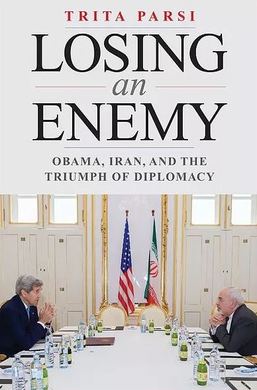
With such context having served as precedent for international policymakers prior to the JCPOA’s formulation, it is essential to view this particular diplomatic relationship from a holistic regional vantage point. In other words, U.S.-Iranian relations and what the JCPOA represents goes well beyond the headliners that many are accustomed to: transcontinental weapons shipments by Hezbollah, the Iranian government’s unfrozen tens of billions in Asian central banks, networks of disguised foreign exchange transfers, arms deals with Russia, etc.
Much of how the U.S. government views Iran relates to the larger interpretation of what the Middle East represents for American interests. More generally, the regional balance of power has shifted significantly due to the invasion of Iraq, which, in turn, has weakened Israel, Saudi Arabia, Egypt, and other U.S. allies. If one were to assume that the Middle East is essential to U.S. national security, the U.S. must act and act with strong consideration. If one were to view the Middle East as not nearly as valuable as it had been decades ago, the costs of American hegemony in the region are to be much less significant. Yet, at the moment, there are three failed states and possibly two more in the region. By such indications, one could confidently suggest that costs of U.S. regional leadership have increased dramatically.
With weaker allies, competitors from East Asia now have the capacity to influence major international decisions. From China’s perspective, increased U.S. involvement in the Middle East is received positively, as the Chinese focus has transitioned to Africa and South America, where the U.S. has been less attentive over the past decade. During the Obama administration, key gaps in staffing and presence across Asia spurred a shift in strategy.
The Trump administration’s strategy, if any, has been to reverse various Obama era foreign policy hallmarks, most notably by quadrupling U.S. troop presence in Syria and by deploying 3,000 additional troops to Afghanistan, thereby intensifying proxy efforts to counter Russian and Iranian presence in the region. Since it is currently much more difficult to identify what the U.S. is actually trying to achieve, its allies have an easier time carrying out their own separate offenses with less divided focus. According to Parsi, “there is no national dialogue because everything is transactional and not strategic.”
The rise of official and unofficial Iranian presence across the Middle East has also yielded domestic turmoil within Iran’s borders. The uprisings beginning at the end of 2017 left many surprised that a chain of protests across the country could occur quickly without growing expectations of national and international public perception. As evidenced by the protests, President Hassan Rouhani is no longer afforded the luxury of shifting the leverage of national politics into a regional context. This is especially true when there is considerably less American and Israeli malfeasance and the relative success of Shia militias in Iraq and Syria.
Even with the leaderless uprising emerging within various Iranian cities at once, the reaction of the government wasn’t nearly as brutal as it had been in 2009 during the Green Movement, which consisted of its own political leadership that translated the Iranian people’s public anger and national anxiety more effectively. This time, the leaders from 2009 were on the sidelines. After all, with many of the protesters in their twenties and unemployed, the connection and transparency with the Iranian middle class wasn’t as pronounced, or clear for that matter. “If they had been more involved, it would have been more potent. There were beliefs that it could lead to something more serious that no one wants,” explains Parsi.
During “The Risk of War with Iran: a talk by Trita Parsi” held by the Columbia World Affairs Council, Parsi will present in greater detail the many talks and operations that preceded the international agreement of the JCPOA, how close the U.S. was in fact to actually engaging in war with Iran, and further insight into internal political movements within Iran. REGISTER HERE!
Much of how the U.S. government views Iran relates to the larger interpretation of what the Middle East represents for American interests. More generally, the regional balance of power has shifted significantly due to the invasion of Iraq, which, in turn, has weakened Israel, Saudi Arabia, Egypt, and other U.S. allies. If one were to assume that the Middle East is essential to U.S. national security, the U.S. must act and act with strong consideration. If one were to view the Middle East as not nearly as valuable as it had been decades ago, the costs of American hegemony in the region are to be much less significant. Yet, at the moment, there are three failed states and possibly two more in the region. By such indications, one could confidently suggest that costs of U.S. regional leadership have increased dramatically.
With weaker allies, competitors from East Asia now have the capacity to influence major international decisions. From China’s perspective, increased U.S. involvement in the Middle East is received positively, as the Chinese focus has transitioned to Africa and South America, where the U.S. has been less attentive over the past decade. During the Obama administration, key gaps in staffing and presence across Asia spurred a shift in strategy.
The Trump administration’s strategy, if any, has been to reverse various Obama era foreign policy hallmarks, most notably by quadrupling U.S. troop presence in Syria and by deploying 3,000 additional troops to Afghanistan, thereby intensifying proxy efforts to counter Russian and Iranian presence in the region. Since it is currently much more difficult to identify what the U.S. is actually trying to achieve, its allies have an easier time carrying out their own separate offenses with less divided focus. According to Parsi, “there is no national dialogue because everything is transactional and not strategic.”
The rise of official and unofficial Iranian presence across the Middle East has also yielded domestic turmoil within Iran’s borders. The uprisings beginning at the end of 2017 left many surprised that a chain of protests across the country could occur quickly without growing expectations of national and international public perception. As evidenced by the protests, President Hassan Rouhani is no longer afforded the luxury of shifting the leverage of national politics into a regional context. This is especially true when there is considerably less American and Israeli malfeasance and the relative success of Shia militias in Iraq and Syria.
Even with the leaderless uprising emerging within various Iranian cities at once, the reaction of the government wasn’t nearly as brutal as it had been in 2009 during the Green Movement, which consisted of its own political leadership that translated the Iranian people’s public anger and national anxiety more effectively. This time, the leaders from 2009 were on the sidelines. After all, with many of the protesters in their twenties and unemployed, the connection and transparency with the Iranian middle class wasn’t as pronounced, or clear for that matter. “If they had been more involved, it would have been more potent. There were beliefs that it could lead to something more serious that no one wants,” explains Parsi.
During “The Risk of War with Iran: a talk by Trita Parsi” held by the Columbia World Affairs Council, Parsi will present in greater detail the many talks and operations that preceded the international agreement of the JCPOA, how close the U.S. was in fact to actually engaging in war with Iran, and further insight into internal political movements within Iran. REGISTER HERE!
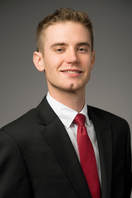
Austin Nix began working with Columbia World Affairs Council in July of 2017. Before graduating from the University of South Carolina in 2016 with degrees in Spanish and French language with a minor in linguistics, Austin had lived extensively in both France and Spain and had worked with the Student Success Center at USC for five years as a Supplemental Instructor of Inductive and Deductive Logic for the University's Department of Philosophy. At CWAC, Austin has served as intern, research coordinator, and program officer and co-coordinator of international visitor leadership programs (IVLPs) through the U.S. State Department. Additionally, Austin has collaborated with Midlands Anchor as an economic development analyst and currently works at PricewaterhouseCoopers as a risk and regulatory consultant. Ultimately, Austin aims to pursue career interests that include foreign policy, cybersecurity, and global economics. Austin can be reached at austin.nix@columbiaworldaffairs.org.
March 9, 2018
China’s social and economic impact on South Carolina
by Austin Nix
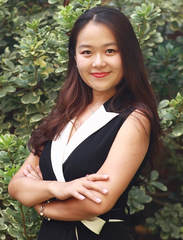 Yanxi Liu
Yanxi Liu
As the world’s balance of power shifts, there’s much indication that China has finally reached its position at the epicenter of international policy and economics that many had predicted for decades. Whether it’s President Xi Jinping’s ongoing ideological ambitions, the expansion of Chinese markets and the evolution of foreign investment strategies, or regional disputes in East Asia, China has assumed its role front and center as a guiding international force.
On February 13th, The Columbia World Affairs Council hosted a presentation detailing the future of U.S. economic foreign policy and our nation’s relationship with China, entitled “China and the United States: Cooperation beyond Competition.” The presenter, Yanxi Liu, Regional Economic Research Assistant, Division of Research, at the University of South Carolina’s Darla Moore School of Business and the U.S. Representative for Sanmenxia Sister Cities, outlined not only China’s economic and national policy and the pivotal role played by Sister City relationships, but she also provided those in attendance with greater insight into China’s overall economic approach to investment and trade with South Carolina.
For Yanxi, Columbia as a location and the Darla Moore School as an academic institution represent a global channel of influence for Chinese-U.S. relations and act as her personal brand that she will be promoting moving forward. The growing merge of the Midlands region with the Upstate has become “a bridge between China and the U.S.”
According to Yanxi, the held stereotypes of the Chinese market must be reconciled to understand why the U.S. and the state would establish a corporate partnership with China or promote Chinese tourism for that matter. Quite simply, China’s GDP annual growth rate of 6.8% has made a dramatic impact on South Carolina’s economy, creating 259 jobs and bringing $200M to the state with $69M coming into the University of South Carolina. In most cases, the tuition of a Chinese student studying in the U.S. is paid for by their family in cash, not through loans. This same direct cash stream used additionally for transportation costs and living expenses stimulates the U.S. economy with 45k jobs each year. Considering that these students generally enter into engineering and computer science departments, such an influx of Chinese academic influence on American universities has contributed example after example of innovative improvements to technology.
However, Chinese and other international students typically return after their semester(s) abroad, as many of them have difficulties finding jobs or internships upon completion of their education. If neither job nor internship are obtained within the three months after graduating or completing their education, an Optional Practical Training (OPT) status, allowing them to legally stay for another year, is deemed unavailable to the student. Even if an international student is granted the allotted twelve months of OPT status, the individual requires an H-1B visa that allows U.S. employers to employ foreign workers in specialty occupations. For many international students, such a series of obstacles encourages a return home to test respective job markets.
Apart from U.S. universities acting as a form of direct Chinese investment in the U.S. economy, if there’s one key takeaway from both President Xi’s speech at the 19th National Congress of the Communist Party of China (CPC) last fall and the World Economic Forum’s Annual Meeting at Davos in January, it’s that China’s investment in technology will be the primary focus from this point into the future. This represents a major shift in economic principle, reshapes the outsider’s impression of what the Chinese economy is capable of, and creates seemingly boundless social implications. Make no mistake, Chinese real estate investment is still the largest form of investment in the U.S. All in all, China being the second largest trade partner of the U.S. and the E.U. over the course of the past five years that Xi has been in office will be far from jeopardized.
Although, where the Chinese economy can really grow beyond anyone’s expectations is through the technology sector and tech consumer demand. Chinese companies no longer have to rely on price for market share, but simply the quality of the product. Huawei, China’s telecom market leader, is beginning to go head-to-head with Apple, incorporating hardware before Apple’s releases of iPhones. But Chinese smartphone makers aren’t the country’s true technology leaders; it’s their internet companies. As forecasted, the Chinese economy’s future will be largely reliant upon its internet companies that are bound by the Chinese government’s regulations, but must also cater to their customer base that expects innovative services. The “Great Firewall,” a system of online restrictions designed for mass censorship, has become the world’s largest non-tariff barrier that invariably protects the Chinese economy from U.S. competition.
The world’s largest retailer, Alibaba, is a mix of Amazon, Twitter, and PayPal that uses various forms of robotics and drones to deliver products. Social media and gaming giant, Tencent, has a market values that is greater than Facebook’s. Baidu, China’s version of Google, mimics Google’s investment in A.I. Internet giants and smartphone makers are now the peers of Silicon Valley rather than previously having been labelled as imitators. Even though the “Apple effect” may have provided the blueprint for this corporate tech surge in China and regardless of whether Apple leads by a considerable margin to these Chinese companies in terms of profit, Amazon, Facebook, and Google have either been met with innovative competition or have been surpassed. The restrictive nature of the Chinese market has made these companies larger, more profitable, and more advanced, which directly impacts how much China invests overseas, and more applicably, in the South Carolina.
According to the South Carolina Research Authority (SCRA), there are growing expectations that Chinese investment within the state and the Chinese market’s availability to South Carolina will continue to expand. In terms of the Chinese businesses and corporations investing in South Carolina, Chinese automotive, consumer electronics, and advanced materials mainstays have flocked to the Palmetto state. Volvo Car USA projects the employment of 2k people over the next decade at its new factory in Berkeley County, South Carolina. More notably, the parent company of Volvo Cars, Geely, is a Chinese multinational automotive manufacturing company. Chinese consumer electronics and home appliances company, Haier, established manufacturing operations in Kershaw County, South Carolina in 1999. Haier has recently expanded these operations in Camden with a $72M expansion that will add more the 400 jobs over the next five years. Sun Fiber LLC, with manufacturing and production operations in Rock Hill, South Carolina, is a wholly owned subsidiary of the Chinese company, Cixi Jiangnan Chemical Fiber Co., LTD based out of Zhejiang. Of the fifteen to twenty Chinese companies in South Carolina, some are manufacturing providers for a very unlikely, yet famous foreign investment cornerstone within the state: BMW.
Despite the Trump administration’s unpredictable, even isolationist, economic, and political relationship with China, one must appreciate China for exactly what it is and, now more than ever, what it more broadly represents. Ultimately, China’s social and economic impact on South Carolina and the state’s capital has spurred a statewide and citywide boom all its own.
On February 13th, The Columbia World Affairs Council hosted a presentation detailing the future of U.S. economic foreign policy and our nation’s relationship with China, entitled “China and the United States: Cooperation beyond Competition.” The presenter, Yanxi Liu, Regional Economic Research Assistant, Division of Research, at the University of South Carolina’s Darla Moore School of Business and the U.S. Representative for Sanmenxia Sister Cities, outlined not only China’s economic and national policy and the pivotal role played by Sister City relationships, but she also provided those in attendance with greater insight into China’s overall economic approach to investment and trade with South Carolina.
For Yanxi, Columbia as a location and the Darla Moore School as an academic institution represent a global channel of influence for Chinese-U.S. relations and act as her personal brand that she will be promoting moving forward. The growing merge of the Midlands region with the Upstate has become “a bridge between China and the U.S.”
According to Yanxi, the held stereotypes of the Chinese market must be reconciled to understand why the U.S. and the state would establish a corporate partnership with China or promote Chinese tourism for that matter. Quite simply, China’s GDP annual growth rate of 6.8% has made a dramatic impact on South Carolina’s economy, creating 259 jobs and bringing $200M to the state with $69M coming into the University of South Carolina. In most cases, the tuition of a Chinese student studying in the U.S. is paid for by their family in cash, not through loans. This same direct cash stream used additionally for transportation costs and living expenses stimulates the U.S. economy with 45k jobs each year. Considering that these students generally enter into engineering and computer science departments, such an influx of Chinese academic influence on American universities has contributed example after example of innovative improvements to technology.
However, Chinese and other international students typically return after their semester(s) abroad, as many of them have difficulties finding jobs or internships upon completion of their education. If neither job nor internship are obtained within the three months after graduating or completing their education, an Optional Practical Training (OPT) status, allowing them to legally stay for another year, is deemed unavailable to the student. Even if an international student is granted the allotted twelve months of OPT status, the individual requires an H-1B visa that allows U.S. employers to employ foreign workers in specialty occupations. For many international students, such a series of obstacles encourages a return home to test respective job markets.
Apart from U.S. universities acting as a form of direct Chinese investment in the U.S. economy, if there’s one key takeaway from both President Xi’s speech at the 19th National Congress of the Communist Party of China (CPC) last fall and the World Economic Forum’s Annual Meeting at Davos in January, it’s that China’s investment in technology will be the primary focus from this point into the future. This represents a major shift in economic principle, reshapes the outsider’s impression of what the Chinese economy is capable of, and creates seemingly boundless social implications. Make no mistake, Chinese real estate investment is still the largest form of investment in the U.S. All in all, China being the second largest trade partner of the U.S. and the E.U. over the course of the past five years that Xi has been in office will be far from jeopardized.
Although, where the Chinese economy can really grow beyond anyone’s expectations is through the technology sector and tech consumer demand. Chinese companies no longer have to rely on price for market share, but simply the quality of the product. Huawei, China’s telecom market leader, is beginning to go head-to-head with Apple, incorporating hardware before Apple’s releases of iPhones. But Chinese smartphone makers aren’t the country’s true technology leaders; it’s their internet companies. As forecasted, the Chinese economy’s future will be largely reliant upon its internet companies that are bound by the Chinese government’s regulations, but must also cater to their customer base that expects innovative services. The “Great Firewall,” a system of online restrictions designed for mass censorship, has become the world’s largest non-tariff barrier that invariably protects the Chinese economy from U.S. competition.
The world’s largest retailer, Alibaba, is a mix of Amazon, Twitter, and PayPal that uses various forms of robotics and drones to deliver products. Social media and gaming giant, Tencent, has a market values that is greater than Facebook’s. Baidu, China’s version of Google, mimics Google’s investment in A.I. Internet giants and smartphone makers are now the peers of Silicon Valley rather than previously having been labelled as imitators. Even though the “Apple effect” may have provided the blueprint for this corporate tech surge in China and regardless of whether Apple leads by a considerable margin to these Chinese companies in terms of profit, Amazon, Facebook, and Google have either been met with innovative competition or have been surpassed. The restrictive nature of the Chinese market has made these companies larger, more profitable, and more advanced, which directly impacts how much China invests overseas, and more applicably, in the South Carolina.
According to the South Carolina Research Authority (SCRA), there are growing expectations that Chinese investment within the state and the Chinese market’s availability to South Carolina will continue to expand. In terms of the Chinese businesses and corporations investing in South Carolina, Chinese automotive, consumer electronics, and advanced materials mainstays have flocked to the Palmetto state. Volvo Car USA projects the employment of 2k people over the next decade at its new factory in Berkeley County, South Carolina. More notably, the parent company of Volvo Cars, Geely, is a Chinese multinational automotive manufacturing company. Chinese consumer electronics and home appliances company, Haier, established manufacturing operations in Kershaw County, South Carolina in 1999. Haier has recently expanded these operations in Camden with a $72M expansion that will add more the 400 jobs over the next five years. Sun Fiber LLC, with manufacturing and production operations in Rock Hill, South Carolina, is a wholly owned subsidiary of the Chinese company, Cixi Jiangnan Chemical Fiber Co., LTD based out of Zhejiang. Of the fifteen to twenty Chinese companies in South Carolina, some are manufacturing providers for a very unlikely, yet famous foreign investment cornerstone within the state: BMW.
Despite the Trump administration’s unpredictable, even isolationist, economic, and political relationship with China, one must appreciate China for exactly what it is and, now more than ever, what it more broadly represents. Ultimately, China’s social and economic impact on South Carolina and the state’s capital has spurred a statewide and citywide boom all its own.
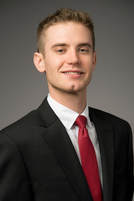
Austin Nix began working with Columbia World Affairs Council in July of 2017. Before graduating from the University of South Carolina in 2016 with degrees in Spanish and French language with a minor in linguistics, Austin had lived extensively in both France and Spain and had worked with the Student Success Center at USC for five years as a Supplemental Instructor of Inductive and Deductive Logic for the University's Department of Philosophy. At CWAC, Austin has served as intern, research coordinator, and program officer and co-coordinator of international visitor leadership programs (IVLPs) through the U.S. State Department. Additionally, Austin has collaborated with Midlands Anchor as an economic development analyst and currently works at PricewaterhouseCoopers as a risk and regulatory consultant. Ultimately, Austin aims to pursue career interests that include foreign policy, cybersecurity, and global economics. Austin can be reached at austin.nix@columbiaworldaffairs.org.
January 24, 2018
South Carolina, Innovation, and the Mobility Revolution
by Austin Nix, CWAC Intern
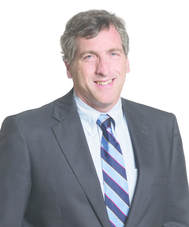 Morris Ellison, Partner, Womble Bond Dickinson
Morris Ellison, Partner, Womble Bond Dickinson
The “mobility revolution” arrived before many realized that it was altering our environment, influencing our decisions, or had even identified it. In 2018, “mobility” is more than incorporating autonomous vehicles and delivery drones alongside the cars we drive and the trains we catch. In fact, it’s more about how people and goods move, what we have access to, which questions we ask and answer, and how we define innovation as a concept.
According to Morris Ellison, of the transatlantic law firm Womble Bond Dickinson, the “mobility revolution” is about opportunity. This past October, as part of Columbia World Affairs Council’s Distinguished Speakers Series, Ellison presented “Building a Transportation Innovation Center in South Carolina,” an analysis of the German-Israeli-American Innovation Triangle, the many factors available to South Carolina, and its emerging role as not only a national, but global, competitor in advanced manufacturing and technology research.
To all outward appearances, South Carolina is a small state that is simply attractive for tourism, especially the City of Charleston. However, few realize that it is increasingly technology, not tourism, driving the Charleston economy or just how attractive Charleston has become to the young workers who form the backbone of most knowledge based companies.
The past decade has propelled South Carolina onto the international stage. The state has led the country in foreign direct investment (“FDI”) in at least 3 of the past 5 years. International investment has tended to cluster around the Greenville, Columbia, and Charleston metro areas with over $16 billion of FDI being invested in South Carolina creating over 27,000 new jobs. In fact, nearly 1/3 of all jobs announced in South Carolina between 2011 and 2016 were the direct result of FDI. Conversely, as population rapidly increases across the state, the sprawling growth patterns present new challenges in rising infrastructure costs, traffic congestion, a lack of accessibility to public transportation, and less availability of the necessary workforce.
Yet, to Ellison and others throughout the state, herein lies tremendous opportunity. South Carolina is far more accepting of change than it was just a decade ago and is small enough to facilitate internal collaboration amongst its many resources. In terms of the reaction to the unique circumstances surrounding the existing economy within the state, South Carolina is following the lead of another small state: the state of Israel. To much acclaim, South Carolina is the North American home to many foreign automotive manufacturers including Mercedes and Volvo in Charleston and, perhaps most famously, BMW in Greer. Likewise, virtually every American and German auto manufacturer has established an innovation center in Israel, known to many as the “start-up nation.” Various other American and German manufacturers have opened numerous R&D centers throughout Israel. From the real time GPS technology of Waze (purchased by Google in 2013 for approximately $1 billion) to the collision avoidance technology of Mobileye (purchased by Intel in 2017 for $15 billion) to the cyber technology of Argus Security (purchased by the German company Continental in 2017 for $430 million), Israeli technology tends to lead as the start-up nation impacting the world.
The first tech-related advancement manufactured by a German company often originates in an Israeli R&D center. These centers are scattered throughout the country. Helping South Carolina companies and policymakers familiarize themselves over the past seven years with the Israeli tech ecosystem, Ellison and others involved in the South Carolina Israel Collaboration have helped South Carolina benefit by examining multiple statewide policies used in Israel and many forms of advanced technical and financial assistance to develop and commercialize R&D centers, thus creating a network of public, private, and university organizations. As a direct result of the Collaboration’s efforts, South Carolina is now the only state in the United States which has a trade agreement with Israel that offers a built-in funding mechanism. Ellison notes, “Israel’s natural resource is knowledge and information, so Israeli companies’ markets are worldwide.” South Carolina affords companies with the opportunity to participate in an ecosystem in close proximity to the markets that they serve. Encouraging R&D centers to apply their knowledge to manufacturers allows manufacturers to develop more sophisticated products quickly in order to address rapid changes in the marketplace. The co-location of 1/3 of Boeing’s worldwide IT with its 787 manufacturing facility in North Charleston offers a case in point.
In theory, combining and consolidating the cooperative forces of research, development, innovation, and production increases the ability for companies to be nimble and adapt to changing technologies and markets. Pair this with the practical application of new “big data” collection techniques by data companies and public-sector initiatives, your company and, therefore, your innovation triangle are provided with insights that were once inconceivable.
However, developing South Carolina’s very own innovation triangle remains easier said than done. Ultimately, data analytics and automation cannot totally remove subjectivity, though artificial intelligence (“AI”) is trying to push the envelope as hard as it can. Designing and creating an environment that combines the suitable research initiatives, an available workforce, and the necessary capital investment seems otherwise improbable without the collaboration of private, public, and academic resources. Why haven’t we seen more of this collaboration in the United States? According to Ellison, “when it comes to knowledge-based companies, the metrics aren’t a good fit for how states recruit companies.” The primary metrics in recruitment are capital investment and numbers of jobs. Capital investment is taxed, albeit often at lower initial rates for new companies as a result of incentives. Start-ups don’t usually involve high capital investment. The jobs offered by a knowledge based company are often fewer, but usually offer a substantially higher rate of pay. However, the multiplier effect of knowledge based jobs is often 4 to 1 when compared with a 2 to 1 impact of manufacturing jobs. Incentives, which often take the form of tax credits, are not attractive to start-ups which are usually not making money and thereby are unconcerned with taxes.
Regardless, to welcome and to embrace the change introduced by the “mobility revolution” and the state’s rapidly growing economy, South Carolina must assert itself as an innovative global competitor. As Morris Ellison put it, “The question is whether we want to compete in the evolving knowledge and advanced manufacturing economies. You guarantee failure by not trying.” Big data strategy, implementation, and the “mobility revolution” will only continue to improve the livability of our communities, transform our cities, and protect the environment. Concerns related to privacy, safety, and security has dramatically shaped public opinion, impeding the subsequent adoption of many innovative technologies and the solutions they offer. When the rate of innovation is unstoppable and even increased due to emerging technologies working to enhance the very rate itself, one has the choice of fewer or greater outcomes. South Carolina’s emergence and recent notoriety is clearly a testament to pursuing the latter. The touchstone of many technological advances is collaboration and cooperation. The question is, when will South Carolina identify synergy and its brainpower as its most abundant natural resources?
According to Morris Ellison, of the transatlantic law firm Womble Bond Dickinson, the “mobility revolution” is about opportunity. This past October, as part of Columbia World Affairs Council’s Distinguished Speakers Series, Ellison presented “Building a Transportation Innovation Center in South Carolina,” an analysis of the German-Israeli-American Innovation Triangle, the many factors available to South Carolina, and its emerging role as not only a national, but global, competitor in advanced manufacturing and technology research.
To all outward appearances, South Carolina is a small state that is simply attractive for tourism, especially the City of Charleston. However, few realize that it is increasingly technology, not tourism, driving the Charleston economy or just how attractive Charleston has become to the young workers who form the backbone of most knowledge based companies.
The past decade has propelled South Carolina onto the international stage. The state has led the country in foreign direct investment (“FDI”) in at least 3 of the past 5 years. International investment has tended to cluster around the Greenville, Columbia, and Charleston metro areas with over $16 billion of FDI being invested in South Carolina creating over 27,000 new jobs. In fact, nearly 1/3 of all jobs announced in South Carolina between 2011 and 2016 were the direct result of FDI. Conversely, as population rapidly increases across the state, the sprawling growth patterns present new challenges in rising infrastructure costs, traffic congestion, a lack of accessibility to public transportation, and less availability of the necessary workforce.
Yet, to Ellison and others throughout the state, herein lies tremendous opportunity. South Carolina is far more accepting of change than it was just a decade ago and is small enough to facilitate internal collaboration amongst its many resources. In terms of the reaction to the unique circumstances surrounding the existing economy within the state, South Carolina is following the lead of another small state: the state of Israel. To much acclaim, South Carolina is the North American home to many foreign automotive manufacturers including Mercedes and Volvo in Charleston and, perhaps most famously, BMW in Greer. Likewise, virtually every American and German auto manufacturer has established an innovation center in Israel, known to many as the “start-up nation.” Various other American and German manufacturers have opened numerous R&D centers throughout Israel. From the real time GPS technology of Waze (purchased by Google in 2013 for approximately $1 billion) to the collision avoidance technology of Mobileye (purchased by Intel in 2017 for $15 billion) to the cyber technology of Argus Security (purchased by the German company Continental in 2017 for $430 million), Israeli technology tends to lead as the start-up nation impacting the world.
The first tech-related advancement manufactured by a German company often originates in an Israeli R&D center. These centers are scattered throughout the country. Helping South Carolina companies and policymakers familiarize themselves over the past seven years with the Israeli tech ecosystem, Ellison and others involved in the South Carolina Israel Collaboration have helped South Carolina benefit by examining multiple statewide policies used in Israel and many forms of advanced technical and financial assistance to develop and commercialize R&D centers, thus creating a network of public, private, and university organizations. As a direct result of the Collaboration’s efforts, South Carolina is now the only state in the United States which has a trade agreement with Israel that offers a built-in funding mechanism. Ellison notes, “Israel’s natural resource is knowledge and information, so Israeli companies’ markets are worldwide.” South Carolina affords companies with the opportunity to participate in an ecosystem in close proximity to the markets that they serve. Encouraging R&D centers to apply their knowledge to manufacturers allows manufacturers to develop more sophisticated products quickly in order to address rapid changes in the marketplace. The co-location of 1/3 of Boeing’s worldwide IT with its 787 manufacturing facility in North Charleston offers a case in point.
In theory, combining and consolidating the cooperative forces of research, development, innovation, and production increases the ability for companies to be nimble and adapt to changing technologies and markets. Pair this with the practical application of new “big data” collection techniques by data companies and public-sector initiatives, your company and, therefore, your innovation triangle are provided with insights that were once inconceivable.
However, developing South Carolina’s very own innovation triangle remains easier said than done. Ultimately, data analytics and automation cannot totally remove subjectivity, though artificial intelligence (“AI”) is trying to push the envelope as hard as it can. Designing and creating an environment that combines the suitable research initiatives, an available workforce, and the necessary capital investment seems otherwise improbable without the collaboration of private, public, and academic resources. Why haven’t we seen more of this collaboration in the United States? According to Ellison, “when it comes to knowledge-based companies, the metrics aren’t a good fit for how states recruit companies.” The primary metrics in recruitment are capital investment and numbers of jobs. Capital investment is taxed, albeit often at lower initial rates for new companies as a result of incentives. Start-ups don’t usually involve high capital investment. The jobs offered by a knowledge based company are often fewer, but usually offer a substantially higher rate of pay. However, the multiplier effect of knowledge based jobs is often 4 to 1 when compared with a 2 to 1 impact of manufacturing jobs. Incentives, which often take the form of tax credits, are not attractive to start-ups which are usually not making money and thereby are unconcerned with taxes.
Regardless, to welcome and to embrace the change introduced by the “mobility revolution” and the state’s rapidly growing economy, South Carolina must assert itself as an innovative global competitor. As Morris Ellison put it, “The question is whether we want to compete in the evolving knowledge and advanced manufacturing economies. You guarantee failure by not trying.” Big data strategy, implementation, and the “mobility revolution” will only continue to improve the livability of our communities, transform our cities, and protect the environment. Concerns related to privacy, safety, and security has dramatically shaped public opinion, impeding the subsequent adoption of many innovative technologies and the solutions they offer. When the rate of innovation is unstoppable and even increased due to emerging technologies working to enhance the very rate itself, one has the choice of fewer or greater outcomes. South Carolina’s emergence and recent notoriety is clearly a testament to pursuing the latter. The touchstone of many technological advances is collaboration and cooperation. The question is, when will South Carolina identify synergy and its brainpower as its most abundant natural resources?
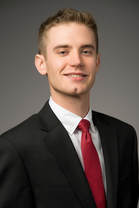
Austin Nix began working with Columbia World Affairs Council in July of 2017. Before graduating from the University of South Carolina in 2016 with degrees in Spanish and French language with a minor in linguistics, Austin had lived extensively in both France and Spain and had worked with the Student Success Center at USC for five years as a Supplemental Instructor of Inductive and Deductive Logic for the University's Department of Philosophy. At CWAC, Austin has served as intern, research coordinator, and program officer and co-coordinator of international visitor leadership programs (IVLPs) through the U.S. State Department. Additionally, Austin has collaborated with Midlands Anchor as an economic development analyst and currently works at PricewaterhouseCoopers as a risk and regulatory consultant. Ultimately, Austin aims to pursue career interests that include foreign policy, cybersecurity, and global economics. Austin can be reached at [email protected].
Press Releases |
CWAC in the News |

